
- Constructed scripts
- Multilingual Pages

Useful phrases in Venda
A collection of useful phrases in Venda (Tshivenḓa), a Bantu language spoken in parts of South Africa and Zimbabwe
Jump to phrases
See these phrases in any combination of two languages in the Phrase Finder . If you can provide recordings, corrections or additional translations, please contact me .
Key to abbreviations: m = said by males, f = said by females
Corrections by Tshilidzi Nekhavhambe
If you would like to make any corrections or additions to this page, or if you can provide recordings, please contact me .
Information about Venda | Phrases | Numbers | Tower of Babel
Other collections of Venda phrases
Phrases in Bantu languages
Bemba , Chichewa , Chokwe , Duala , Herero , Kikuyu , Kinyarwanda , Lingala , Lozi , Luganda , Ndebele (Northern - South Africa) , Ndebele (Northern - Zimbabwe) , Ndebele (Southern) Nkore , Northern Sotho , Oshiwambo , Shona , Southern Sotho (seSotho) , Swahili , Swati , Tsonga , Tswana , Tumbuka , Umbundu , Venda , Xhosa , Zulu
Phrases in other languages
728x90 (Best VPN)
Why not share this page:

If you like this site and find it useful, you can support it by making a donation via PayPal or Patreon , or by contributing in other ways . Omniglot is how I make my living.
Get a 30-day Free Trial of Amazon Prime (UK)

- Learn languages quickly
- One-to-one Chinese lessons
- Learn languages with Varsity Tutors
- Green Web Hosting
- Daily bite-size stories in Mandarin
- EnglishScore Tutors
- English Like a Native
- Learn French Online
- Learn languages with MosaLingua
- Learn languages with Ling
- Find Visa information for all countries
- Writing systems
- Con-scripts
- Useful phrases
- Language learning
- Multilingual pages
- Advertising


Recommended Services
Wordpress hosting 02.
Email Hosting
Supported scripts, how are you in venda south africa.

Table of Contents
Quick Summary
This comprehensive guide offers valuable insights into the world of Venda greetings, providing essential phrases, cultural context, and resources for further learning. From understanding the significance of greetings in Venda culture to exploring the University of Venda’s contributions, this guide equips readers with the knowledge and tools to engage authentically with the Venda community.
Whether you’re a language enthusiast, a traveler, or simply curious about different cultures, mastering Venda greetings opens doors to new connections and enriching experiences. Embrace the journey, celebrate the diversity of language, and let the spirit of Venda greetings guide your interactions with the world.
I. Introduction
Welcome to our comprehensive guide on how to greet someone in Venda! In this blog post, we’ll delve into the rich cultural heritage of the Venda language, also known as Tshivenḓa, and explore the significance of greetings within Venda society. Greetings are more than just words; they serve as a reflection of respect and politeness, fostering positive relationships and harmonious interactions. Whether you’re interested in learning the language or planning to visit Venda, understanding proper greetings is key to engaging with the local culture.
II. Understanding Venda Greetings
In Venda culture, greetings play a vital role in social interactions. They are not merely exchanges of pleasantries but are deeply rooted in tradition and respect. When greeting someone in Venda, it’s essential to understand the significance of each phrase and the customs associated with them.
Importance of Greetings in Venda Society
Greetings are seen as expressions of acknowledgment and recognition, demonstrating mutual respect for each other’s dignity. They help establish connections between individuals and maintain social harmony within the community. In Venda, showing courtesy through greetings is highly valued and considered an integral part of daily life.
Cultural Customs and Etiquettes
Venda greetings are characterized by specific customs and etiquettes. For example, it is customary to greet elders first as a sign of respect. When shaking hands, it’s polite to use your right hand while supporting the forearm with your left hand. Maintaining eye contact during greetings is also important as it shows sincerity and interest.
Unique Traditions: “Kushumela Mukhoro”
One unique tradition associated with greetings in Venda is “kushumela mukhoro.” This tradition involves extending both hands while shaking hands during a greeting gesture—a symbolization meant to show sincerity by offering open palms without any hidden intentions or ill will. This gesture reflects the openness and warmth of Venda culture.
In the next section, we’ll explore some common greetings and phrases used in Venda, along with pronunciation guides for each phrase. Stay tuned!
III. Useful Phrases in Venda
Learning basic phrases in Venda is a great way to start engaging with the language and its culture. Here are some common greetings and phrases you can use:
Hello (General greeting)
- Venda : Ndaa (m), Aa (f)
- Translation : Hello
- Usage : Use “Ndaa” when greeting a male and “Aa” when greeting a female.
How are you?
- Venda : Vho vuwa hani?
- Translation : How are you?
- Usage : A common inquiry to ask about someone’s well-being.
Reply to ‘How are you?’
- Venda : Ndo vuwa.
- Translation : I am well.
- Usage : A response when everything is fine.
Pleased to meet you
- Venda : Ndo takala ro divhana.
- Translation : Pleased to meet you.
- Usage : Used when meeting someone for the first time.
Good morning (Morning Greeting)
- Venda : Ndza matsheloni.
- Translation : Good morning.
- Usage : A greeting used in the morning.
Good evening (Evening greeting)
- Venda : Ndi madekwana avhudi (replace name if known).
- Translation : Good evening.
- Usage : Employed once dusk sets upon the land signaling nighttime approaching.
Parting Phrase (to Person staying)
- Venda : Kha vha sale.
- Translation : Goodbye (to someone staying).
- Usage : Said when bidding farewell to someone who is staying.
Parting Phrase (to Person leaving)
- Venda : Vha tshimbile zwavhudi.
- Translation : Goodbye (to someone leaving).
- Usage : Said when bidding farewell to someone who is leaving.
- Venda : Ndo livhuwa.
- Translation : Thank you.
- Usage : Express gratitude or appreciation.
Thank You (Formal)
- Venda : Ndo livhuwa nga maanda.
- Translation : Thank you very much.
- Usage : Used in more formal settings or when expressing deep appreciation.
These phrases will come in handy when interacting with native speakers of Venda and show your interest in their language and culture. Now, let’s delve into the cultural significance of greetings in Venda.
IV. Cultural Significance of Greetings in Venda
Greetings hold great importance in Venda culture, serving as more than just a formality. They are integral to social interactions, reflecting respect and establishing relationships within the community. Let’s explore further:
Role in Social Harmony
In Venda society, greetings play a crucial role in maintaining social harmony. They are expressions of acknowledgment and recognition, demonstrating mutual respect for each other’s dignity. By exchanging greetings, individuals show that they value each other’s presence and consider them worthy enough to engage with on a personal level.
Establishing Connections
Greetings help establish connections between people from different backgrounds or age groups. When meeting someone new or encountering elders within the community, it is customary to greet them using specific phrases that convey deference and honor towards their status. This practice fosters unity and mutual respect among members of the community.
Traditional Customs
Venda greetings are often accompanied by traditional customs and etiquettes. For example, it is customary to greet elders first as a sign of respect. When shaking hands, it’s polite to use your right hand while supporting the forearm with your left hand. Maintaining eye contact during greetings is also important as it shows sincerity and interest.
Symbolism of Gestures
One unique custom associated with greetings in Venda is known as “kushumela mukhoro.” This tradition involves extending both hands while shaking hands during a greeting gesture—a symbolization meant to show sincerity by offering open palms without any hidden intentions or ill will. This gesture reflects the openness and warmth of Venda culture.
Understanding the cultural significance of greetings in Venda is key to engaging respectfully within the community. In the next sections, we’ll explore the University of Venda’s contribution to the Venda language and provide additional resources for learning Venda. Stay tuned!
V. University of Venda’s Contribution to the Venda Language
The University of Venda plays a pivotal role in preserving and promoting the Venda language, Tshivenḓa. Let’s delve into how this esteemed institution contributes to the preservation and advancement of the Venda language:
Language Programs and Initiatives
The University of Venda offers a range of language programs dedicated to teaching students how to read, write, speak, and understand Venda fluently. These programs cater not only to native speakers but also to non-native learners who are interested in immersing themselves in this unique Bantu language. Through formal academic courses and extracurricular activities, the university provides a platform for students to engage with the language and its cultural nuances.
Research and Documentation
The university actively supports research projects focused on documenting endangered languages like Tshivendᴂ. Scholars from diverse fields collaborate with local communities and traditional leaders to ensure accurate representation while respecting indigenous knowledge systems. By documenting and studying the Venda language, researchers contribute to its preservation and enable future generations to access this invaluable cultural heritage.
Community Engagement
Through collaborations with local communities, the University of Venda fosters mutual respect, cultural exchange, and sustainable community development. Student associations organize cultural events and language workshops, providing opportunities for individuals to practice speaking Venda and celebrate their linguistic heritage. These initiatives not only enrich the university experience but also strengthen ties between academia and the broader community.
Promoting Linguistic Diversity
The University of Venda recognizes the importance of linguistic diversity and actively promotes multilingualism within its academic programs. By offering courses in indigenous languages like Venda, the university contributes to the preservation of cultural heritage and the empowerment of linguistic minorities. Through education and research, the institution fosters an environment where linguistic diversity is celebrated and valued.
VI. Additional Resources for Learning Venda
If you’re interested in learning more about the Venda language and expanding your knowledge beyond basic greetings, there are several resources available to support your journey:
Online Resources
- URL3 – Useful Phrases Collection : URL3 provides a comprehensive collection of useful phrases in Venda (Tshivenḓa), covering various aspects of conversation, greetings, and basic communication.
- Duolingo : While not specific to Venda, Duolingo offers courses for numerous languages worldwide and may include Venda in the future.
- Memrise : Another popular platform offering interactive lessons for multiple languages, Memrise may have content tailored toward Venda learners.
Offline Resources
- Community Classes : Check for local community centers or language institutes offering classes or workshops in Venda. These in-person sessions provide opportunities for immersive learning and cultural exchange.
- Language Meetups : Attend language meetups or cultural events within communities where Venda speakers reside. Engaging with native speakers in real-life settings can enhance your language skills and deepen your understanding of Venda culture.
By leveraging these resources, you can embark on a rewarding journey of learning and exploration, enriching your understanding of the Venda language and culture. In the next section, we’ll address frequently asked questions about greeting in Venda and provide expert insights and tips. Stay tuned!
VII. Frequently Asked Questions (FAQs)
Question 1: what are some other common phrases in venda.
In addition to the greetings mentioned earlier, there are several other common phrases in Venda that you can use to communicate with others. Some examples include:
- How old are you? : U vhona u vha nga ndila?
- Where is the bathroom? : I khou itela ngopfu?
- Can you help me? : Ndi a ku pfuna?
- I don’t understand : Ha khensa
- Excuse me : Ndza kombisa
These phrases will come in handy when engaging in basic conversations or seeking assistance while interacting with native speakers of Venda.
Question 2: How do I pronounce Venda greetings correctly?
Pronunciation plays an important role when learning any language, including Venda. Here’s a guide on how to pronounce some commonly used greetings:
- Hello (General greeting) : Ndaa (m), Aa (f) [pronounced as “N-dah” for males and “Ah” for females]
- Good morning : Ndi matsheloni [pronounced as “n-dee maht-she-loh-ni”]
- Good afternoon : Ndi masiari [pronounced as “n-dee mahs-yah-rhee”]
- Good evening : Ndi madekwana [“ma-day-kwuh-na”]
Remember that practicing these pronunciations regularly will greatly improve your ability to speak and be understood by native speakers.
Question 3: Are there any specific cultural customs or etiquette I should be aware of when greeting someone in Venda?
Yes, there are a few cultural customs and etiquettes to keep in mind when greeting someone in Venda. Here are some important points:
- It is customary to greet elders first as a sign of respect.
- When shaking hands, use your right hand while supporting the forearm with your left hand for added politeness.
- Maintain eye contact during greetings as it shows sincerity and interest.
- Use appropriate titles such as “Makhulu” (grandmother) or “Tate” (father) before addressing older individuals.
By being mindful of these customs, you will demonstrate appreciation for the local culture and make positive connections with people from the Venda community.
Question 4: Can you provide more information about the University of Venda’s language programs?
The University of Venda offers various language programs aimed at promoting and preserving indigenous languages like Venda. These programs include courses on linguistics, literature studies, translation services, and research projects related to African languages including Tshivhena/Vhavendanḓa. For detailed information regarding their language-related offerings such as degrees offered within this field, please visit URL2.
Question 5: Are there any Venda language courses available for non-native speakers?
Yes! Several institutions offer classes specifically designed for non-native speakers who wish to learn how to speak Venda. Some options include private tutors, online platforms offering interactive lessons, and community centers that may host group sessions. To find out what options might be available near you, you can search online directories or social media groups dedicated to learning South African languages.
VIII. Expert Insights and Tips
Personal experience.
Learning a new language can be a rewarding experience, and Venda is no exception. As someone who has immersed myself in Venda culture, I can attest to the warmth and hospitality of its people. By taking the time to learn Venda greetings and customs, you’ll not only enrich your travel experiences but also form meaningful connections with the locals.
Tips for Effective Communication
- Practice regularly: Consistent practice is key to mastering any language. Set aside time each day to practice Venda greetings and phrases.
- Immerse yourself in the culture: Explore Venda traditions, music, and cuisine to deepen your understanding of the language.
- Be patient: Learning a new language takes time and effort. Celebrate your progress along the way and don’t be afraid to make mistakes.
- Engage with native speakers: Nothing beats real-life practice. Seek out opportunities to converse with native Venda speakers and learn from their insights.
By incorporating these tips into your language-learning journey, you’ll be well on your way to becoming proficient in Venda greetings and beyond.
In the next section, we’ll conclude our comprehensive guide on how to greet someone in Venda. Stay tuned for a recap of key points and final thoughts!
IX. Conclusion
In conclusion, mastering greetings in the Venda language opens the door to a rich cultural experience and meaningful interactions with the Venda community. Throughout this guide, we’ve explored various aspects of Venda greetings, from common phrases to cultural customs and etiquette.
Understanding the importance of greetings in Venda goes beyond linguistic proficiency; it reflects respect, acknowledgment, and the establishment of social connections. By learning and practicing Venda greetings, you not only show appreciation for the language but also demonstrate a genuine interest in the culture and traditions of the Venda people.
We’ve also highlighted the invaluable contributions of the University of Venda in preserving and promoting the Venda language through its language programs, research initiatives, and community engagement efforts. Additionally, we’ve provided resources and expert tips to support your journey in learning Venda greetings and further immersing yourself in the language and culture.
Remember, language learning is a journey, and every step you take brings you closer to a deeper understanding of the world around you. So, whether you’re planning a trip to Venda or simply seeking to broaden your linguistic horizons, embracing Venda greetings is a meaningful and rewarding endeavor.
X. References
- Omniglot. (n.d.). Venda phrases. Retrieved from https://www.omniglot.com/language/phrases/venda.htm
- University of Venda. (n.d.). Official Website. Retrieved from https://www.univen.ac.za/
- SA Languages. (n.d.). Tshivenda Words and Phrases. Retrieved from http://www.salanguages.com/tshivenda/words.htm
These references provide valuable insights and resources for further exploration of the Venda language and culture. Incorporating them into your language-learning journey will enhance your understanding and appreciation of Venda greetings and beyond.
Author’s Note
As the author of this comprehensive guide on Venda greetings, I want to express my gratitude for taking the time to explore the richness of the Venda language and culture. Learning Venda greetings is not just about mastering words; it’s about embracing a way of life, connecting with a community, and fostering cultural understanding.
I encourage you to approach your language-learning journey with curiosity, patience, and an open heart. Every word you learn brings you closer to the vibrant tapestry of human experience, enriching your life in ways you may not yet imagine.
If you ever feel discouraged or overwhelmed, remember that language learning is a marathon, not a sprint. Celebrate your progress, embrace your mistakes, and keep moving forward. The journey may have its challenges, but the rewards are immeasurable.
Thank you for joining me on this exploration of Venda greetings. May your encounters be filled with warmth, respect, and meaningful connections.
Wishing you joy and fulfillment on your language-learning adventure,
Brief Note about the author.

I am Kimbowa Geofrey, a go-getter, It is my passion that drives me in all I do but also the personal improvement that I experience. My story started about 8 years back, trying one business to another, it wasn’t easy at the start because I didn’t get exactly what I expected out of these businesses and my frustration grew. Luckily I stumbled upon three businesses that changed my life; Web hosting, web development, and blogging. Learn More
Brief Note about Hostziza.
Hostziza Tech Solutions was founded in August 2021 by two visionary entrepreneurs, Dr Nkurunziza Emmanuel and Mr Kimbowa Geofrey. As an organization, we take satisfaction in our assembly of committed experts, each contributing diverse skills to our endeavors. Our skilled developers, designers, marketers, and support personnel collaborate harmoniously to provide integrated solutions that efficiently fulfill the requirements of our clients. Learn more
Our Editorial Process
Hostziza’s commitment to informative content spans beyond reviews, encompassing diverse topics catered to various interests. Our team’s collective expertise ensures a spectrum of articles, from beginner-friendly guides to in-depth analyses. Meticulous research, including industry studies and expert interviews, underpins our articles, ensuring accuracy and relevance. We aim to educate, breaking down complex subjects into digestible segments, fostering understanding and informed decision-making. Through interactive engagement and continuous updates, we strive to be companions on our readers’ journey through a multitude of knowledge domains.
Thank you for your trust and support in Hostziza.
Affiliate Link Disclosure:
At Hostziza, some of our articles may contain affiliate links, which means that if you click on these links and make a purchase, we may earn a commission at no additional cost to you. We want to be fully transparent and upfront about this. We only recommend products and services that we genuinely believe in and have personally used or extensively researched. Our reviews are based on our honest opinions, experiences, and thorough evaluations. It’s important to note that while these affiliate links provide us with compensation, our primary goal is to offer valuable insights and help our readers make informed decisions.
Share this Post
Leave a reply cancel reply.
Your email address will not be published. Required fields are marked *
Save my name, email, and website in this browser for the next time I comment.

- Latest Learning Content
- South African School Papers
Venda Lessons 101 – Learn to Speak Tshivenda
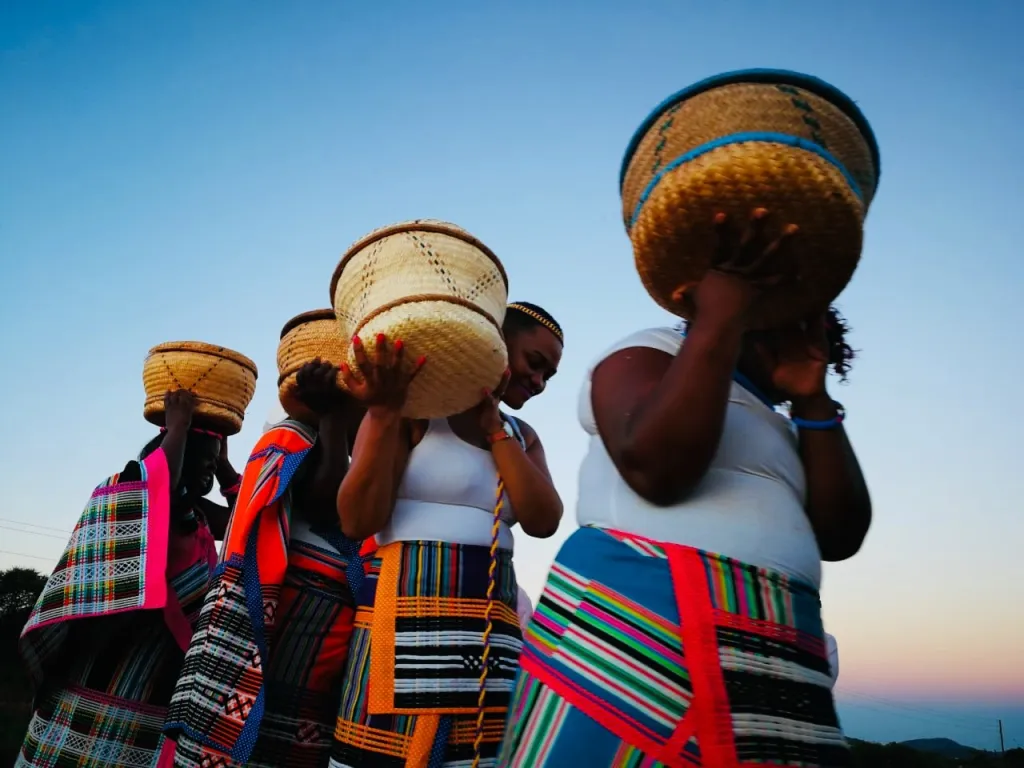
Welcome to Venda Lessons 101 – Learn to Speak Tshivenda ! Tshivenda, often referred to simply as Venda , is one of South Africa’s eleven official languages . It is primarily spoken by the Venda people in the northeastern parts of Limpopo Province . Rich in cultural history and noted for its complex grammar and vocabulary, Tshivenda is a language that resonates with the heritage of its people.
On this page, we will dive into the most famous and popular phrases in the Tshivenda language to help you learn how to speak and communicate effectively in this beautiful language. Whether you’re planning a visit to the Venda region , looking to connect with its culture, or simply expanding your linguistic skills, mastering these phrases will give you a fantastic foundation in Tshivenda. Let’s get started and explore the vibrant world of Venda together!
Popular Phrases in Tshivenda
How do you say hello in Tshivenda?
To say hello in Tshivenda, females typically use “Aa” while males say “Ndaa” or “Nndaa” , emphasizing the “N” sound. The response from the other person will also vary based on their gender.
This gender-specific manner of greeting not only reflects the cultural nuances of the Venda people but also adds a layer of respect and acknowledgment in social interactions. By using these greetings, speakers immediately convey their gender in a subtle and culturally significant way, which influences how conversations are structured.
How do you say I love you in Tshivenda?
To say “I love you” in Tshivenda, you must say “Ndi a ni funa” . The words individually translate to “ndi” (I), “a” (love), and “ni” (you). To express reciprocal love, you would say “Na nne ndi a ni funa” , which means “I also love you.”
Using this phrase in Tshivenda communicates deep affection and personal attachment. It is a direct and meaningful way to express feelings, reflecting the importance and intensity of the emotion in the Venda culture. The structure of the phrase helps emphasize the sincerity of the sentiment being expressed.
Can you hear me in Tshivenda?
To ask if someone can hear you in Tshivenda, you say “Ni kho umpfa naa?” which translates directly to “Can you hear me?”
This phrase is particularly useful in ensuring clear communication, especially in situations where verbal feedback is necessary to confirm understanding or attention. It highlights the interactive nature of communication in Tshivenda, emphasizing clarity and mutual engagement in conversations.
What is yes in Tshivenda?
To affirmatively respond or say “yes” in Tshivenda, you use the word “Ee” .
This straightforward affirmation is central to Tshivenda communication, used in agreeing, acknowledging, or accepting during conversations. The simplicity of the word makes it easy to remember and effective in fostering clear and positive interactions.
What is God in Tshivenda?
In Tshivenda, “Mudzimu” or “Nwali” refers to God. Other names for God in Tshivenda include “Mune washu” meaning our master, “Khotsi a shu” meaning our father, “Ramakole” meaning the owner of clouds, “Yehova” meaning Jehovah, and “Musiki” meaning the creator.
These diverse names reflect the deep spiritual and cultural connections the Venda people have with the divine. Each name represents different aspects or attributes of God, emphasizing His significance in their daily life and spirituality.
How do you greet a girl in Venda?
To greet a girl in Venda, you would say “Aa” if you are female or “Ndaa” if you are male, both meaning hello, then after you would put a noun to indicate a girl. You could say ndaa “khaladzi” = which means hello sister. Additional phrases include “Hurini” or “Hurini naa” , meaning “How are you?” or “How is it going?” Another way to ask how someone is doing is by saying “Hu to ita hani?” which also translates to “How are you?”
These greetings are crucial in social interactions, showing politeness and interest in the person’s wellbeing. They help in establishing a connection and are a fundamental part of daily communication in Venda culture.
What is a friend in Venda?
In Venda, a friend is referred to as “Mungane” , “Thama” , or “Khonana” .
These terms signify the bond and close relationship between individuals. Each word can be used in slightly different contexts or based on personal preference but all convey the importance and value of friendship within the Venda community. Using these words, individuals express companionship, trust, and mutual respect.
What is happiness in Venda?
In Venda, the word for happiness is “Dakalo” or “Madakalo” . A common phrase to express a joyful day would be “Namusi ndi duvha la dakalo” , which translates to “Today is the day of happiness.”
The concept of happiness in Venda culture is often shared and celebrated communally. Expressing joy through language not only reflects personal feelings but also enhances social bonds and collective well-being. Phrases like these are used during celebrations, gatherings, or in any context that brings joy, emphasizing the value of happiness in the Venda community.
What is father in Tshivenda?
In Tshivenda, the word for father is “Khotsi” or “Baba” .
These terms are deeply respectful and affectionate, used commonly in both family contexts and broader social interactions. “Khotsi” and “Baba” denote not only biological fatherhood but also respect and authority within a community or family, highlighting the revered position of fathers in Venda culture.
What is a Princess in Tshivenda?
In Tshivenda, a princess is referred to as “Mukololo” .
The title “Mukololo” carries cultural significance, denoting not only royal bloodline but also the social responsibilities and respect accorded to female members of the royal family. The term is used within communities to acknowledge the stature and respect that come with her role, which often includes cultural and ceremonial duties.
What is a husband in Venda?
In Venda, the word for husband is “Munna” or sometimes “Khotsi” , the latter also meaning father.
The use of “Khotsi” in this context underscores the role of a husband as not just a spouse but a father figure and a pillar in the family structure. “Munna” directly refers to a male partner in marriage, emphasizing his role and responsibilities within the household. These terms reflect the culturally embedded roles that define family dynamics in the Venda community.
What is a Venda person called?
A Venda person is called “MuVenda.” In a sentence, you might say “Nne ndi muVenda” , meaning “I’m a Venda person.”
This terminology reflects both ethnic identity and linguistic affiliation. The term “MuVenda” is widely used to denote an individual who belongs to the Venda community, highlighting their cultural heritage and association with the Venda people of South Africa.
What is freedom in Venda?
In Venda, the word for freedom is “Mbofholowo” . To express the state of being freed, you would say “To vhofhololwa” , meaning “we have been freed.”
This term encapsulates the concept of liberation and the joy associated with gaining freedom, whether it be political, social, or personal. It is a powerful expression within the context of South Africa’s history and resonates deeply in celebrations of freedom and independence.
Is Venda similar to Shona?
Yes, Venda and Shona share linguistic similarities and are part of the Bantu language family. Both languages have common linguistic structures, vocabulary, and syntax, which point to their historical connections and mutual influences.
This relationship enhances the cultural and linguistic bonds between the Venda and Shona-speaking peoples, illustrating the interconnectedness of the regions where these languages are spoken.
What is salt in Venda?
The word for salt in Venda is “Muno” .
Salt, an essential dietary mineral and a crucial ingredient in cooking, holds a significant place in daily life and cultural practices, including food preservation and flavoring.
Which language is closest to Venda?
Shona and Sepedi are the languages closest to Tshivenda.
These languages share several linguistic features with Tshivenda, including phonetic sounds, vocabulary, and grammatical structures, indicating a close historical and cultural proximity. This similarity allows for some mutual intelligibility among speakers of these languages, reflecting their shared origins within the Bantu language group.
What are the love phrases in Venda?
In Venda, expressions of affection are rich and varied. Some common love phrases include:
- “Ndi a ni funa” (I love you)
- “Muthu wanga” (my person)
- “Nyanenge wanga” (my love)
- “Khomba yanga” (my girl)
- “Dzivha la mbilu yanga” (the love of my heart)
These phrases are deeply expressive and used to convey affection and deep emotional connections within relationships. Each phrase enriches the Venda language’s romantic vocabulary, allowing speakers to articulate their feelings with sincerity and cultural authenticity.
What is the translation of “I love you” to Venda?
The translation of “I love you” to Venda is “Ndi a ni funa.”
This straightforward translation carries a profound emotional weight, encapsulating love and affection in a simple yet powerful phrase. It is a direct way to express one’s feelings to another, holding a universal appeal that transcends linguistic boundaries.
What does “Ndo neta” mean?
“Ndo neta” means “I am tired.” For example, in a sentence, “Ndo neta nga u shuma ndi sa holi” , it translates to “I’m tired of working without payment.”
This phrase is commonly used to express physical or emotional fatigue. It can be applied in various contexts, whether discussing work, personal efforts, or general life situations, reflecting the speaker’s need for rest or a change.
What does “Ndi a ni funa” mean?

“Ndi a ni funa” means “I love you.”
This phrase is a declaration of love and is among the most heartfelt expressions in any language. In Tshivenda, it serves as a powerful affirmation of affection, often used in romantic contexts to express deep emotional connections between individuals.
How are you doing in Venda?
To ask someone how they are doing in Venda, you can say “Hu to u ita hani?” or simply “Hurini,” both translating to “How are you?”
These phrases are common conversational starters used to inquire about someone’s wellbeing in a polite and caring manner. They can be used in various social contexts, reflecting the speaker’s interest in the personal state of the listener.
How do you say “I’m fine” in Venda?
To express that you are doing well in Venda, you can say “Ndo takala” or “Nne ndi hone,” both meaning “I’m fine.”
These responses are typical follow-ups to “How are you?” in daily conversations, providing a positive affirmation about one’s state. They help maintain a light and friendly interaction, reassuring the inquirer of the speaker’s good condition.
Where do you stay in Tshivenda?
To ask someone where they live in Tshivenda, you would say “Ni dzula gai?” The response might be “Nne ndi dzula Thohoyandou,” meaning “I stay in Thohoyandou.”
This question is useful for getting to know more about someone’s living arrangements or simply as part of a conversation. It can help establish a connection or give context to further discussion about local issues or experiences.
What is hate in Venda?
The word for hate in Venda is “Vengo.” To express the action of hating, you would say “U vhenga.” If you want to say “I hate you,” it would be “Ndi a ni vhenga.”
Understanding expressions of negative emotions like hate is also important as it reflects more complex human interactions. These phrases, while not commonly used in polite conversation, are part of the emotional spectrum covered in the Tshivenda language, providing words for various feelings and states of being.
Related Posts

Diane tsa Setswana le ditlhaloso: downloadable pdf
On this page you will find Diane tsa Setswana le ditlhaloso for Grade 12, Grade 11, Grade 10 in a downloadable pdf format List...

Saying “Thank You” in Venda Language
The Essence of Gratitude in Venda: Understanding “Thank You” in Tshivenda Language In the rich tapestry of South African languages, Tshivenda, or simply Venda,...
Previous Story
The Important Link Between Personality and Work Environment
Grade 12 2024 june exams timetable.
Ecotraveller.co.za
Walking venda – the journey within.
Exploring Venda’s little known sacred places, culture and natural environment, this ecopsychology walk is a journey within. Unsanitised and authentic, it challenges and transforms.
The remains of last season’s mielies stand tattered between rampant blackjacks and pumpkins, wood smoke drifts across the ordered disorder of plastic bowls and pots that guard the fire between corn store and hut, an old woman endlessly shells roasted peanuts.

Time steadies to a slow beat as the women chatter, stirring, picking, plucking, peeling the feast that awaits. Dogs scratch and stretch, slinking underfoot, chickens disperse in clucking scuffles, pecking around the cooking pots. The men lean into conversation.
The procession of food is carried in, delivered on bent knee, respectful hands clasped to one side and deferential heads bowed to the men. Silken pap, pumpkin mash, blackjack spinach fried chicken, Tilapia fish, Mopane worm stew – the food is organic, foraged or cultivated in a permaculture style of farming, unprocessed and fresh to the table. We eat with our hands, sensing feeling respecting the food as it coats our fingers.

I’m staying in the rural village of Makwarani, in Venda (Also known as Eastern Vhembe), historically a tribal homeland under Apartheid, situated in the remote North East corner of South Africa. The week-long trip, organized by Jeff Rink of Ecopsychology Africa , is taking us on a journey into the forested hills and valleys of Venda’s Soutpansberg, staying in villages, visiting sacred sites and being absorbed heart and soul into the fertile landscape and rich VhaVenda culture.

After dinner as the evening settles, the drumbeats deepen and the women rouse, sinuously wrapping their half naked bangled bodies into the long writhing coil of the Python dance. Young and old they stomp and gyrate emphatically, entranced as the drumming intensifies into a hypnotic beat.

The next morning, I awaken rudely from vivid dreaming as the last stars are drowned out by strident incessant crowing – the valley soft pink and blue in the pre-dawn. I stretch out in my sleeping bag, having slept deeply on the unaccustomed comforting discomfort of the floor, only stirring fleetingly to turn my mildly bruised hips that still resist the reed mat. I am deeply peaceful and completely present in this foreign place.

As the sun warms the manured walls of the kraal, the morning routine of bucket washes and pit toilets, kettles on the fire for coffee refreshes us, and we gather for a breakfast of avocados, steamed sweet potatoes, fruit, baobab and sunflower seeds. There is no rush, everything happens as it should.

We climb up through indigenous bush, our guide Edwin distinguishing a multitude of bird calls, and highlighting medicinal plants used by traditional healers.

We stop to look at dung beetles and butterflies, Nguni cattle intercept us and a local farmer offers us freshly cut sugar cane sticks to chew on, we find a grove of citrus trees, resting in the shade we suck on the sweet fibres and pucker our mouths at sour lemons.

The river rushes and bubbles into swirling cauldrons and throws itself over ledges. The Tshatshingo Potholes drown with the ghosts of witches and criminals.

We’ve come to the river to meet the charismatic Dr Mashudu Dima (Sangoma, medical doctor, historian and part-time radio station host) and his wife Mphatheleni Makaulule, who is an indigenous knowledge practitioner and environmental activist in Venda. Brought up in the Vuyha village, Mpatheleni has a deep passion for the traditions of her people, and is fighting the fast attrition of her culture and desecration of sacred sites as westernisation engulfs the communities.

They share stories of traditional medicines, the sanctity of scared spaces, cherished rituals, the threat to culture and their love of Venda.

Although he’s in his eighties, Dr Dima speaks energetically, vital as a young man. He’s walking proof of the health-giving powers of this environment. Could rural Venda be a Blue Zone? (Regions of the world where people live much longer and healthier lives than average, including Okinawa in Japan, Sardinia in Italy and Icaria in Greece). Every day in Venda, we meet wiry geriatrics, carrying wood, tilling fields, stirring pots into their dotage, our guides tell us its commonplace for people to live to over a hundred.

We spit on leaves and toss them on the pile of stones, marking the place a corpse paused on its journey to its final resting place. That death is respected, and ancestors revered is evident in the VhaVenda culture, from the funeral home calendar replete with limousines in the chief’s parlour to modern gravesites that are ornate monuments to the dead – granite slabs surrounded by burglar guards and tiled roofs. Even the long dead are sometimes exhumed and the bones taken by virgins to the sacred forest for reburial among ancient trees.

We visit the Thathe Vondo sacred forest, guided by Chief Netshidzivhe, of Tshidzivhe village, where we’ve spent the night. As we enter, a bank of cold mist rolls down the path, the trees dripping with old man’s beard. We tread lightly, walking in stillness, the forest breathes around us.

As we walk between the villages, we are affronted by the alien symmetry of acres of pine plantations, encroaching on rivers and lakes, invading the indigenous forests. Another Apartheid legacy, left by the Nationalist government, these water-draining wood factories greedily support no other life, poisoning the soil and causing erosion that silts the rivers and lakes.

Our guides Nelson, Thamba and Roli talk to us about Venda cultural practices, the rich biodiversity of the area and the environmental threats to all of it, from industrial forestry to insensitive tourism development to pending mining rights to the urbanization of younger generations.
I look down at Lake Funduzi from between my legs. According to tradition, visitors to the area must immediately bend over and view the lake from between their legs, the first time they see it.

When we walk down to the lake, it’s the most tranquil place, the silence broken only by the cries of a fish eagle. Across the lake the Soutpansberg mountains are covered in forested wilderness. My adventurous spirit begs for the opportunity to go there.
The children of Tshiheni village squeal and giggle in the late afternoon, posing for photos and showing off their excellent reading skills as we relax with our books and journals outside the huts.
The full moon is rising. We sleep outside. I wake up in the middle of the night, silver light defining the valley in sharp contrast, the air breathless at the beauty of it.

Venda isn’t paradise – rural poverty is widespread and modernisation is eroding culture. Its capital Thohoyandou is a sprawl of Tuscan inspired housing, roadside food stalls manned by stoic women selling generous piles of fruit and veg and crates of live chickens, funeral parlours, car washes and an ugly mall with usual bland array of chainstores. The city is lively and vibrant, but traditional Venda culture is only evident in an enormous clay pot at a roundabout intersection, and a collection of magnificent art and craft gathering dust at the Thohoyandou cultural centre.
As we return to our starting point at Mukambani, I feel unsettled and reluctant to leave. My body has relished the hike and the simple, healthy food, and my mind feels detoxified. A week away from technology (Very little signal and limited access to electricity has kept me offline) and the warmth of the Venda people in welcoming us into their private spaces and sharing their lives has been overwhelming in its generosity.

The Ecopsychology walk is as much a journey within as it is an exploration of an environment. Our group is small and the self-examining, healing space the walk creates, forges bonds that make us friends for life. We are all unexpectedly confronted by things within ourselves that are difficult, and the group holds the space to process this. Nothing is forced, it is the reflections on the experiences we have every day and the way they resonate with us, lead us within, to discuss the deeper issues.
As Jeff said to me at the outset, the walk isn’t meant to be comfortable, it’s challenging and transformative – an unsanitised path to sanity.
About Ecopsychology :
The Ecopsychology retreats are facilitated by Cape Town based clinical psychologist, Jeffrey Rink. Ecopsychology is a medium for integrating psychology, ecology, wilderness, community culture, conservation and meditation towards transformation and healing. Participants gain insight into nature, human nature and their own nature through the process. The adventures are authentic, fun, enriching experiences.
Upcoming retreats:
- Retreat to Okavango Delta & Khwai River 17-26 June 2018
- The Venda Sacred Walk, 8-15 July 2018
For more information contact Jeffrey Rink: [email protected] tel 083 632 3039
www.ecopsychlogyafrica.com

Share this:
Response to “walking venda – the journey within”.
wow this is my home village and I love it here, next time we will link you with http://www.cityofthohoyandou.co.za for more tourism attractions in Limpopo and Gauteng. Again with http://www.masasestudio.co.za for Traditional Wedding Ceremonies. Keep well
Like Liked by 1 person
Leave a comment Cancel reply

- Already have a WordPress.com account? Log in now.
- Subscribe Subscribed
- Copy shortlink
- Report this content
- View post in Reader
- Manage subscriptions
- Collapse this bar

Exploring South
Vacation in South Africa
Venda Cultural Villages

Table of Contents
The Fascinating Traditions and Customs of Venda Culture
In Venda culture, traditions and customs play a significant role in shaping the social fabric of the community. One of the most fascinating traditions is the initiation ceremony for young boys, known as Domba. During this rite of passage, boys are secluded in the mountains for several weeks, where they are taught important life skills and the values of respect, responsibility, and discipline. This ancient tradition is believed to prepare young boys for adulthood and is highly respected within the community.

The layout of Venda villages is also worth mentioning. Houses are often arranged in a circular or semi-circular formation, with a central communal space known as the kraal. This design fosters a strong sense of community and encourages social interaction among residents. The kraal is a lively gathering place, where important ceremonies and festivities take place, further reinforcing the close-knit nature of the Venda culture.
Unveiling the Meaning Behind Venda Art and Craftsmanship
Venda art and craftsmanship is a rich tapestry of creativity and symbolism. Every stroke of the brush, every chisel of the stone, holds a deeper meaning that reflects the traditions and beliefs of the Venda people. From the vibrant colors of their paintings to the intricate carvings of their sculptures, Venda art tells stories of ancestral spirits, ancestral power, and the connection between the physical and spiritual worlds.

Grootbos Private Nature Reserve
Innibos arts festival.

Vredefort Dome Explorations

Discovering Venda Culture on the African Ivory Route
Venda Culture was something completely new for me! Even the language, Venda, is something unfamiliar and doesn’t sound at all the Nguni languages of isiZulu and isiXhosa that I’ve grown up around. I had no idea what to expect from our next stop, and after Kruger National Park’s drought-ridden landscapes I certainly didn’t expect lush, fertile mountainous beauty!
The road to Fundudzi Camp
We were headed towards Fundudzi Camp, a community-run camp on the outskirts of Mukumbani Village, about 10km west of Thohoyandou. We wanted to learn more about Venda culture. The big attraction of our visit was the sacred Lake Fundudzi and the nearby Thathe Vondo sacred forest.
Game reserves are difficult places to leave – there is always the tempting thought that an incredible sighting is waiting for you just down the next road… After packing up our campsite in Kruger’s Shingwedzi Camp we headed for the Punda Maria Gate, Kruger’s via the least direct route possible. It was another blisteringly hot day in Limpopo, and once more I found myself on the sunny side of the car! I also had the pressure of being the navigator in an area that was completely new to me. With intermittent cellphone signal we resorted to our good old South African road atlas, and with my finger tracing the route we headed south-west.
We had been told to phone Nelson, the head guide and our host at the African Ivory Route’s Fundudzi Camp for directions once we got closer. I was a little concerned when he gave me directions like “When you get to the big rock, turn left and once you reach the bamboo stand, phone me for further instructions”! I began to wonder where we were headed. Nevertheless, his directions turned out to be spot on – the ‘big rock’ was unmistakable and we reached the camp without any wrong turns.
We also reached it in the nick of time – the sun was setting and navigating in the dark would have been an interesting experience. The golden evening light gave us the most incredible welcome to the area, and it is one of the most beautiful drives we have done so far on this trip! The rich red soils of the area are incredibly fertile. So much so that every house has a veritable orchard of fruit trees growing outside – mangos and litchis galore!
The area is also known for its tea, and we drove through a section of the Tshivhase Tea Estate, the lime green tea leaves juxtaposing beautifully with the red soil, and with their edges tinged gold by the sun. Mukumbani Village is set on the sides of a mountain, and its jungle-covered cliffs felt exciting, mysterious and other-worldly after the flat plains of Kruger.
Exploring Lake Fundudzi: Sacred places in Venda Culture
Lake Fundudzi and the nearby Thathe Vondo forest are sacred places in the spiritual life of Venda’s Vhatatsindi people. They believe that the lake is protected by a python god who lives in the hills around the lake. Residents can hear him beating his drums, and he is celebrated annually with a puberty dance performed by young girls from the villages close by.
The lake’s mysticism is inherent in its water, which is said to rise and fall independent of rainfall, and although three rivers flow into the lake it never overflows. On two separate occasions, the lake’s water has risen apparently specifically to thwart outsiders’ plans for development along the lake’s edge.
The lake is also unique in that local villagers can enter the water without fear of attack from the numerous crocodiles who live in the lake. Our guide Nelson recounted stories of having crocodiles swim past him when he was playing in the lake as a child. Not knowing if this protection extended to white visitors, we decided not to risk it, even though the day of our visit was another uncomfortably hot and dry day in Limpopo !
To make more sense of Lake Fundudzi and Venda culture, our day’s tour with our guides Nelson and Susie began with a visit to the Phiphidi Falls, a series of cascading falls that have significance in the local Venda culture. From there we went on to the lake itself.
Lake Fundudzi hasn’t escaped the severe drought conditions ravaging the area and after parking Thomas above the historic water line, we began a half hour walk across dry ground to the pool that remained. Nelson told us it was the lowest he had ever seen the lake. After explaining more about the significance of the lake, he instructed us on how to greet it in the traditional way, the ukodola . On first sighting of the lake, you must bend over and greet it upside down through your spread legs. You repeat a Venda phrase that if Nelson’s translation was to be believed, isn’t appropriate for publishing here! The next step is to spit on the ground and throw a small stone through your legs into the lake behind you. All of this we did. When in Venda…
Following the lake, we escaped the heat in the Thathe Vondo sacred forest. The spirituality of this area was tangible, and sitting on the damp grass under a cool canopy of green, Nelson explained to us the process of a second burial. In Venda culture, the ancestors must be petitioned for the deceased of the family to join their ranks. If the ancestors permit, the bones of the deceased are exhumed and reburied amongst the graves of the tribe’s ancestors, the location of this cemetery being a secret. The exhumed bones mustn’t be allowed to touch the ground, and are carried by a young girl of the family whilst in transit. This important role, which to me seems quite traumatic for a young girl to undertake, must be an honour in Venda culture.
Taking in the sights around Mukumbani Village
As I mentioned, the landscape around Mukumbani Village is absolutely breathtaking. The village itself is nestled on the slopes of a jungle-covered mountain, and overlook the lime green hills of the Tshivhase Tea Estate. During our stay, we took in a few of the local sights.
The highlight for us was a visit to the Tshathingo Potholes. This series of small cascading falls and large natural swimming pools is a favourite amongst locals. Because the pools get deeper the further down the falls you go, Nelson and Susie explained to us that the top pools were for small children learning to swim whilst the lower pools were for the older children. We watched some teenagers making precarious rock jumps off the cliff walls into the lowest pool below and decided that he was right!
The potholes really are a sight to take in and the series of falls and pools ends in the river plunging down a vertical face into a swirling cauldron below – the final pothole from which there would be no escape if you were unlucky enough to fall in. Keeping this in mind, we gingerly navigated the narrow rock platform above the pool, desperate to get a good look over the edge but not quite trusting that final shuffling step!
The rich and fertile soils of the area mean that no home, however poor, goes without food. Fruit trees line every garden fence and branches heavy with mangos and litchis hang well within reach. Susie took us to visit a family friend on our way back to Fundudzi Camp and we were greeted by one of the most jovial and welcoming families I have ever met. The youngest daughter supplied me with a steady stream of ripe litchis that she found on the ground while her father set about picking us a bagful to take home. The wife and aunts fetched traditional gear for me to try on and the granny of the house quickly went and changed into her traditional Venda outfit to join me for a few photographs. I say a few photographs, but what actually happened was that everyone who owned a cellphone formed a circle and we were surrounded by the Venda paparazzi, furiously snapping away while we posed for them! I’m sure those photos are circulating around Facebook somewhere! So much fun and laughter with people with whom we couldn’t even speak English.
After a great day out it was time for a shower and then dinner at the local Kid’s Corner Tarven. No, that is not a typo of on my part as we saw branding and advertising for a number of local tarvens on our drives through the area! Dinner was a delicious meal of fried chicken and chips, eaten on the verandah whilst enjoying a glorious sunset over the red and green hills below.
Final thoughts
Although Lake Fundudzi may not currently be on your trip planning radar, it is a very special place and we had a great time there, learning about Venda culture and traditions. The African Ivory Route’s Fundudzi Camp was a perfect balance – set in the cool green hills above the village and a delightful haven away from the heat and bustle and yet within walking distance of Mukumbani Village and its welcoming people. The chance to interact with the locals was a very special and enriching experience. South Africa is a country that is incredibly rich in cultural diversity, so why not make a plan to explore more of that on your next holiday?
Similar Posts
Sun, snorkeling and sand roads in northern kwazulu-natal.
Bevan and I have just been fortunate enough to have spent some time in the Coastal Forest section of the iSimangaliso Wetland Park. This area of the park includes the stretch of northern KwaZulu-Natal coastline between Sodwana Bay and Kosi Bay near the Mozambique border. This is a remote section of coastline, accessible for the most part…
Exploring Tsitsikamma in the Garden Route National Park
The Garden Route National Park encompasses an almost continuous stretch of coastal land from Wilderness in the Garden Route’s west to well past Storms River in the east. Bevan and I have previously visited the Knysna Lakes and Diepwalle Forest sections of the park and this time we were in for a treat – exploring Storms River…
Exploring Monkeys: Telo Islands, Indonesia
Every surfer has heard about the Mentawai Islands in Indonesia. How could you not? Iconic waves like Macaronis and Telescopes have featured in any number of surf videos and magazine articles ever since they were first discovered. But visiting the Mentawai Islands doesn’t exactly look like the photos anymore. Empty lineups are fast becoming a…
The Golden Grotto (黃金峽谷) River Tracing Trail Guide
The Golden Grotto hike on the east coast of Taiwan is a fantastic half-day river tracing adventure into the heart of the Sanzhan River valley. The hike follows the course of the river, quite literally, into Taiwan’s coastal mountains and into a narrow canyon. A waterfall that empties into a small hollow at the end…
A difficult farewell to Thomas
From the time that we started planning our Ultimate South African Road Trip, Bevan and I were looking forward to exploring our country’s west coast from Cape Town up to the Namibian border. Perhaps it is because we have grown up in KwaZulu-Natal that the west coast has this allure for us – it is…
Fossils, fairies and fishing towns on the West Coast Peninsula
As we discovered early on our journey of exploration on the West Coast, this area is full of surprises and unexpected attractions. We spent some time exploring the West Coast peninsular region and discovered all kinds of unique activities. Exploring the West Coast Peninsula back in time For starters, we visited the West Coast Fossil…
One Comment
Joh! Having great fun. Little is known about these parts and you have brought it to life. Interesting trip you are having.
Leave a Reply Cancel reply
Your email address will not be published. Required fields are marked *
This site uses Akismet to reduce spam. Learn how your comment data is processed .
Free Adventure Guides and Outdoor Tips
Enter your email below to get access to our weekly adventure guides, outdoor tips and travel how-tos.
- Travel Website
- Travel trade website
- Business events website
- Corporate & media website
- Welcome to South Africa
- What you need to know
- Things to do
- Places to go
- Get in touch
Choose your country and language:
- South Africa
Asia Pacific
- South Korea
- Netherlands
- United Kingdom
By creating an account, I agree to the Terms of service and Privacy policy
Vibrant culture
Venda culture.
V V enda culture and traditions are rooted in the responsibilities of the royal leaders, who are referred to as mahosi or vhamusanda in the Luvenda language, which means chiefs or traditional leaders who are royal leaders. The royals and their children embody good morals, and lead their communities by example. There’s a Venda proverb that says that if they lack values, they then have a bad odour - “ mukololo a kola u a nukha ”.
The rules of behaviour and traditions are upheld by the royals and the community . Venda culture is also guided by traditional initiation schools where children learn more about their culture, and how to conduct themselves at home and in their community.
W W omen are taught chores such as sweeping, fetching wood and vegetables, washing and cooking. They also learn how to bath and keep their homes clean. They learn through playing games and song and dance. Girls and women also learn how to do handiwork such as making mats, baskets and pottery.
Men are responsible for looking after livestock, and so boys are taught about cattle. They also learn about the trees which they can fetch as poles for building huts, grain pits and fences, and they’re initiated in birds and animals in order to hunt.
Dance holds an important place in Venda culture, and from an early age, children learn dance, drumming and making musical instruments. There are different Venda traditional dances, some for men, others only for men, and several for men and women together. These dances are malende , tshikona and matangwa . There’s also a dance called tshigombela , performed by women, which carries messages of what is happening in the communities. When all these songs are sung, people show happiness by clapping, singing and beating drums. Even when the song carries an unhappy message, the others reply by singing to change the mood.
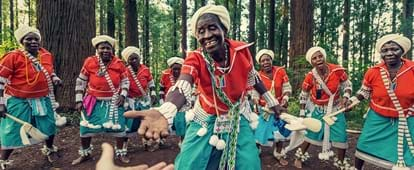
A A bout the author
Makondelele Netshilungwi was born Luheni Dzimauli in Mathale Village and raised in the chief’s palace with the Venda royal family. Netshilungwi is an expert on indigenous matters, having learnt everything from the elders. He is currently serving as an advisor to the Chief of Tshidzivhe territory. He is also the chairperson of Dzomo la Mup, an organisation that works to protect sacred sites, reviving indigenous knowledge to assess and respond to the environmental challenges, and enabling members of Venda clans to have a strong unified voice that represents all communities.
Related articles
Bapedi history, traditions, culture and food, xhosa cuisine: the dishes and traditions, african ancestors, zulu cuisine: the dishes and traditions, traditional african food in south africa, the culture of basotho: history, people, clothing and food, culture and expression of identity: the ndebele of south africa, south africa on social media.
Let's be honest Mzansi!🌞 Life is just simply better when you're surrounded by nature.🌿😍 #ItsMySouthAfrica… https://t.co/bTdMjY2qSQ
@mahlaku_m @Mtpatourism You're doing the most @mahlaku_m, Danko for showing off what Mzansi has to offer🔥!
Epic adventures are always a vibe.👌🏽😎 @ShotLeft We Love a GREAT adventure family affair.😍 #ItsMySouthAfrica… https://t.co/Tc6OlTVrCC
Serene scenic views over everything. 😍 #ItsMySouthAfrica #TravelWiseMzansi https://t.co/PPnOfc5Bfa
Haibo mzala! #FindYourWarmth by taking a Sho’t Left to Biweda Nguni Lodge in Northern KZN. This incredible lodge o… https://t.co/afRxdIxBPd
#FindYourWarmth & explore the breathtaking beauty of the Blyde River Canyon Nature Reserve in Mpumalanga! This maje… https://t.co/5FgrAK6Sfs
#FindYourWarmth at The Perfect Lodge in Bethlehem! Set in the heart of the Eastern Free State, it offers spectacu… https://t.co/JOSj9I1evG
Get ready for an unforgettable winter journey to the captivating beauty of Impendle in KZN! Explore breathtaking… https://t.co/96rhSnDS6p
Haibo Mzansi! Re squeezeng in! Don’t gatekeep those lekker winter hot spots! Share with the rest of us: Where do… https://t.co/JqD8SFVAXt
Let's celebrate the remarkable achievements of our youth in showcasing the vibrant spirit of Mzansi to the world!… https://t.co/sKe3DvMi00
Get the most out of your winter with @SouthernSunGrp Sun Breaks winter deals from only R1,095 in Gauteng, R1,250 i… https://t.co/awse9ELgCR
Heita Mzansi! Sho't Left #TravelWeek23 is coming up! Make sure you stay tuned to our platforms 🙌🏽.… https://t.co/TNt2I1B0Lk
@Livhuwani_king @ChibuzorUkwu @VonganiChabani @Shotgun_za @NMzozoyane @PatriciaDeLille @SATourismOnline Hi Livhuwan… https://t.co/U16E2RxlfF
And of course, delicious food was a must! with visits to 9th Avenue Waterside & more. Ending our trip with an unfor… https://t.co/gd340N5KBW
Ekse Mzansi! Exploring Durban while launching our Sho’t Left #TravelWeek2023 campaign at @travel_indaba was a blast… https://t.co/fUacNPHfrd
RT @TravelNoteSA1: Go @ShotLeft, explore the Panorama Route in #mpumalanga. @Mtpatourism will be promoting its products at the #AfricaTrav…
The Panorama Route allows you to experience the awe-inspiring waterfalls, valleys, mountains and rivers of the magn… https://t.co/FsXtunG7rA
Thank you @maryjaneexplore for exploring the hidden gems of Mzansi Take a Sho't Left and see where it takes you? Y… https://t.co/mmN9XEuRXT
@TheRetiredOne91 Heita Phila! Ska-warra we've got you covered. This is the perfect opportunity to enjoy a road trip… https://t.co/1X1cylbsG1
RT @semaj_tabanira: An absolute masterpiece

- Useful links
- Travel Trade Partners
- Business events
- Travel trade
- Find accommodation
- Useful contacts
- Image Library
- Digital Asset Library


Visit These 10 Nice Places In Venda Now!
- January 19, 2023
Austin Finnan

Venda is a vibrant and beautiful destination in South Africa that offers a wide range of attractions for visitors. From stunning landscapes to fascinating cultural attractions, Venda has something for everyone. Whether you are looking for an adventure or a relaxing holiday, Venda has something to offer. Here are some of the best places to visit in Venda.
The Thohoyandou Nature Reserve is a must-visit destination in Venda. This large wildlife reserve is home to some of the most beautiful wildlife in the region, such as giraffes, zebras, and antelopes. You can also enjoy bird watching, hiking, and camping in the area.
The Limpopo National Park is another great destination in Venda. This extensive park is home to some of the most diverse wildlife in the region, including elephants, lions, leopards, hippos, and more. There are also game drives , boat trips, and guided walks available.
The Tshipise Hot Springs are also a popular destination in Venda. The hot springs are surrounded by lush vegetation and are a great place to relax and unwind. The water is also said to have healing properties that can help with various ailments
- 1 Nice Places To Visit In Venda
- 2 Mapungubwe National Park
- 3 Thulamela Archaeological Site
- 4 Lake Fundudzi
- 5 Conclusion
Nice Places To Visit In Venda
Venda is a beautiful country in South Africa filled with amazing sites and activities to explore. There are many nice places to visit in Venda, such as the Thohoyandou Botanical Gardens , which offer a tranquil spot to relax and take in the local flora and fauna. Nature lovers can also explore the spectacular Nwanedi Nature Reserve , where they will find a variety of wild animals, as well as breathtaking views. For those interested in history , the Dzata Ruins offer an insight into the past of the region, with ancient stone structures and artefacts. Finally, the Mapungubwe National Park is a great spot for outdoor adventure, with its hiking trails, camping spots, and stunning landscapes. Whatever you’re looking for, Venda has something for everyone!
Venda, also known as the Venda Region, is located in the Limpopo province of South Africa . It’s a region rich in culture and natural beauty. Here are ten beautiful places in Venda:
- Lake Fundudzi : This sacred lake is one of the few natural inland lakes in South Africa . The lake and its surroundings are beautiful and serene.
- Thulamela Archaeological Site : Explore the ancient stone walls and artifacts of a civilization that existed about 500 years ago.
- Tshatshingo Potholes : A natural wonder carved by the swirling water of the Mutale River. It’s an impressive sight that’s a result of centuries of water erosion.
- Thathe Vondo Dam : This scenic dam offers great opportunities for picnics, boat rides, and fishing. The surrounding natural reserve is also home to a variety of birds and animals.
- Sagole Big Tree : This is the largest Baobab tree in South Africa and it’s believed to be around 3000 years old. It’s a must-see for nature lovers.
- Nwanedi Nature Reserve : This reserve offers stunning views of the Nwanedi River and the beautiful lush vegetation of the region. There are several hiking trails, as well as an opportunity to see wildlife.
- Tshimbubfe Archaeological Site : Another important archaeological site, Tshimbubfe is believed to have been inhabited by people from around 450 AD to 1400 AD.
- Makgabeng Plateau : This plateau boasts hundreds of rock art sites, showcasing the region’s rich historical and cultural heritage.
- Luvuvhu River : A great place for a peaceful and scenic walk, the Luvuvhu River is home to a diverse range of plant and animal species.
- Mapungubwe National Park : While not located in Venda, this park is near the region and well worth the visit. It’s a UNESCO World Heritage Site and was once the home of an advanced ancient African civilization.
Remember that some of these sites are considered sacred by the Venda people. If you visit, be respectful and consider hiring a local guide who can provide more information about the cultural significance of these sites.

Mapungubwe National Park
Venda is a beautiful landlocked province in South Africa , full of breathtaking landscapes and a unique cultural heritage. One of the most spectacular places to visit in Venda is Mapungubwe National Park . Located in Limpopo province and bordering Botswana, this national park is a world heritage site and home to one of the oldest and richest archaeological sites in Africa .
Mapungubwe National Park covers an area of 24,000 hectares and is made up of pristine grasslands, baobab trees, sandstone ridges, cliffs, and the Limpopo River. It is the perfect destination for nature lovers, as it is home to a plethora of wildlife, such as the rare African wild dog , elephant, white rhino, buffalo, zebra, and many species of antelope.
For those interested in history, Mapungubwe National Park is a must-visit. This ancient kingdom was home to the earliest known African civilization and an advanced trading network that stretched across the continent. The ruins of the royal city , which date back to the 13th century, are a testament to the skill and ingenuity of the Mapungubwe people.
In addition to its historical significance, Mapungubwe National Park is also home to some of the most beautiful vistas in Africa . From the top of the sandstone ridges, visitors can enjoy spectacular views of the Limpopo River and surrounding landscape. The park also offers several hiking trails, allowing visitors to explore the natural wonders of the area.
Mapungubwe National Park is a must-visit destination for anyone looking for a unique and memorable experience in Venda. With its rich cultural heritage, fascinating history , and stunning scenery, it is sure to be an unforgettable experience.

Thulamela Archaeological Site
Venda is an area of South Africa that is full of beautiful natural and cultural attractions. One of the most unique places to visit in Venda is the Thulamela Archaeological Site. This site is a World Heritage Site and is home to some of the most fascinating archaeological discoveries in South Africa .
Thulamela is an Iron Age site that was first discovered in the mid-18th century and is believed to be dated back to the 16th century. The area is located in the Limpopo Province and is situated in the foothills of the dramatic Soutpansberg mountain range . The site covers an area of around 4 hectares and contains the remains of a large settlement, including a number of stone walls, terraces, and the remains of many huts and other structures.
The site is an incredible source of knowledge about the Iron Age culture of the area, and is a must-visit for anyone interested in the history of Venda. The site contains evidence of a sophisticated society, with pottery, metal-working , and other artifacts being discovered at the site. It is a testament to the ingenuity and skill of the people that lived in the area during this time.
When visiting the site, visitors can take a guided tour of the area and learn more about the history and culture of the people that lived there. The site is also home to a number of historical monuments, including a number of graves, which can be explored. Visitors can also take part in activities such as bird watching, hiking, and fishing in the area.
The Thulamela Archaeological Site is a unique and fascinating place to visit in Venda and a must-visit for anyone interested in the history of the area. With its incredible archaeological discoveries and breathtaking natural beauty, the site is sure to provide visitors with an unforgettable experience that they will never forget.

Lake Fundudzi
Venda is a stunningly beautiful province in South Africa , and it’s no surprise that it’s a popular tourist destination. From its majestic mountain ranges , to its lush green forests and rolling hills, there are plenty of amazing sights to take in. One of the best places to visit in Venda is Lake Fundudzi, a sacred lake that is believed to be the home of the Venda people’s ancestors.
The lake is surrounded by mountains, and it’s surrounded by a dense forest of trees, which add to its mystical feel. The lake is said to have been created by the god Thovhele Kuzwayo, who is believed to have descended from the heavens to create the lake. Legend has it that the lake is a portal between the physical world and the spiritual one, and that it is inhabited by spirits.
The lake is a popular destination for pilgrims, who believe that the lake can bring them closer to their ancestor’s spirits. Visitors can also enjoy the stunning views of the surrounding mountains and forests, go fishing and swimming, or even take a boat ride around the lake.
The lake is a great spot for bird watching, and visitors can spot a variety of birds, including the African Fish Eagle and the Red-billed Quelea. Visitors are also likely to spot monkeys, antelopes and even leopards, if they’re lucky.
Lake Fundudzi is a truly spectacular place, with its stunning scenery and its spiritual significance. It’s a must-visit destination for anyone looking to experience the beauty and mysticism of Venda.
In conclusion, there are a number of nice places to visit in Venda, including the Garden of the Twelve Apostles, the Kruger National Park , and the Victoria Falls. These are just a few of the many attractions available in this beautiful country, and there are many others that are just waiting to be discovered. If you are looking for a destination that will offer a unique experience, then you should consider visiting Venda.
Austin Finnan is a blogger, traveler, and author of articles on the website aswica.co.za. He is known for his travels and adventures, which he shares with his readers on his blog. Finnan has always been passionate about exploring new places, which is reflected in his articles and photographs. He is also the author of several books about travel and adventure, which have received positive reviews from critics and readers.
Leave a Reply Cancel reply
Your email address will not be published. Required fields are marked *
Save my name, email, and website in this browser for the next time I comment.
Related Articles

Book Now & Get Big Savings on Domestic Flights at Www.Flysaa.Com
- October 19, 2023

Discover Which Province Pietermaritzburg Is In!

How to Make the Perfect Key Lime Pie
- October 18, 2023


- AFRICAN MYTHOLOGY / MYTHOLOGY
The Rain Queen Modjadji: Venda Mythology in South Africa
by The Enlightenment Journey ·

A Brief Overview
Venda mythology in South Africa is rich with fascinating stories and traditions, and one of its most intriguing figures is the Rain Queen Modjadji. The Rain Queen is believed to have the power to control the weather and bring rain to the land. This article explores the role of Modjadji in Venda culture, the legends surrounding her origin, the rituals and traditions associated with her, and the impact of modernization on her role. We will also delve into Modjadji’s unique lineage, her political power, and her influence on Venda agriculture. Additionally, we will discuss the Rain Queen’s palace and sacred grounds, the celebrations and ceremonies honoring Modjadji, and the challenges faced in preserving Venda mythology.
The Rain Queen Modjadji: Venda Mythology
In Venda mythology, the Rain Queen Modjadji is a revered figure who possesses the ability to control the rain and ensure fertility in the land. The Modjadji dynasty, also known as the Balobedu dynasty, has a long history dating back centuries. Modjadji is believed to be a divine ruler with a direct connection to the ancestral spirits, making her a significant figure in Venda culture.
The Role of Modjadji in Venda Culture
Modjadji’s role in Venda culture is multifaceted. She is not only seen as a spiritual leader but also as a political figure. The Rain Queen is highly respected and regarded as the custodian of rainmaking rituals and traditions. Her position is hereditary, passing from mother to daughter, and she holds immense power and influence in Venda society.
Origins and Legends Surrounding the Rain Queen
The origin of the Rain Queen can be traced back to the legends and myths of the Venda people. According to one of the popular legends, a Venda princess named Dzugundini fell in love with the serpent god, Mwali. They had a child together, who would become the first Rain Queen. The child was named Modjadji, meaning “ruler of the day.”
The Unique Lineage of the Rain Queen
The lineage of the Rain Queen is unique and different from traditional monarchies. Unlike other royal families, the Rain Queen’s lineage is exclusively female. The title of Rain Queen is inherited through the maternal line, with each reigning queen passing her power and responsibilities to her daughter. This unique matrilineal system sets the Rain Queen apart from other monarchies worldwide.
The Enlightenment Journey - Subscribe Now So You Don't Miss Out!
Rituals and traditions associated with modjadji.
Modjadji’s role as the Rain Queen involves performing sacred rituals and preserving ancient traditions. One of the most important rituals is the Rainmaking Ceremony, where the queen communicates with the ancestral spirits to bring rain to the land. This ceremony is held in secrecy and is attended only by select individuals who are entrusted with maintaining the rituals’ sanctity.
Modjadji’s Spiritual Connection with Rain and Fertility
The Rain Queen’s spiritual connection with rain and fertility is central to her role. It is believed that Modjadji has the power to control the weather and ensure bountiful harvests. The Venda people have a deep belief in her ability to bring rain, and they look to her for guidance in agricultural matters.
The Rain Queen’s Influence on Venda Agriculture
The Rain Queen’s influence on Venda agriculture is significant. As the custodian of rainmaking rituals, she plays a crucial role in ensuring the success of crops and the overall well-being of the community. The Venda people have a strong belief that if they honor and respect Modjadji, she will bless their fields with abundant rainfall, leading to prosperous harvests.
Modjadji’s Political Power and Leadership
Beyond her spiritual role, the Rain Queen also holds political power and leadership within the Venda community. She serves as an advisor to the Venda king and has the authority to influence decisions concerning the welfare of the people. The Rain Queen’s opinions and guidance are highly valued, and her leadership is seen as essential for maintaining social harmony.
The Rain Queen’s Palace and Sacred Grounds
The Rain Queen’s palace, known as the Khodani Palace, is a place of great significance in Venda culture. Located in the Limpopo province of South Africa, it is considered sacred and is off-limits to outsiders. The palace is surrounded by lush gardens and is believed to be the dwelling place of the Rain Queen and her ancestral spirits. It serves as a focal point for rituals and ceremonies.
Celebrating Modjadji: Festivals and Ceremonies
The Venda people celebrate and honor Modjadji through various festivals and ceremonies. One of the most important events is the annual Rain Queen Festival, where the community gathers to pay homage to the Rain Queen and celebrate her role in ensuring the fertility of the land. This festival is marked by traditional dances, music, and rituals, showcasing the rich cultural heritage of the Venda people.
The Impact of Modernization on Modjadji’s Role
The role of the Rain Queen has faced challenges due to the impact of modernization. With the advent of Western influence and changes in societal dynamics, some aspects of Venda culture, including the reverence for the Rain Queen, have diminished. The younger generation, influenced by modern ideals, may not fully understand or appreciate the significance of Modjadji’s role.
The Preservation of Venda Mythology: Challenges and Efforts
Preserving Venda mythology, including the legacy of the Rain Queen, faces various challenges. The erosion of traditional practices and beliefs, coupled with limited resources for documentation and research, poses a threat to the continuity of Venda mythology. However, efforts are being made to safeguard this rich cultural heritage. Initiatives such as educational programs, cultural festivals, and the involvement of the younger generation aim to ensure the preservation and transmission of Venda mythology for future generations.
The Rain Queen Modjadji holds a prominent place in Venda mythology and culture. From her role as a rainmaker to her political power and leadership, Modjadji’s influence is far-reaching. The rituals, traditions, and ceremonies associated with her are deeply rooted in the beliefs and values of the Venda people. As the world becomes more modernized, the preservation of Venda mythology, including the legacy of the Rain Queen, becomes increasingly important. By understanding and appreciating the significance of Modjadji, we can gain insight into the rich tapestry of Venda culture and ensure its enduring legacy.

AMAZING SPIRITUALITY PROGRAMS
Your MASTERY OF LIFE begins the moment you break through your prisons of self-created limitations and enter the inner worlds where creation begins. -Dr. Jonathan Parker-
Amazing Spirituality Programs You Must Try! As You Go Along With Your Spiritual Journey. Click on the images for more information .
Spirituality & Enlightenment
Health, Healing & Fitness
Design a Positive Life & Be Happy
Mindfulness & Meditation
Be Successful & Prosperous
More Awesome Spirituality Programs Here
Disclosure:
This blog includes affiliate links. If you click on these links and make a purchase, we may earn a small commission at no extra cost to you. We only suggest products and services that we trust and believe will be helpful to our readers. Our recommendations are based on thorough research and personal experience to ensure they are honest and reliable.
The commissions earned from these links help cover the costs of maintaining our site, such as web hosting, domain registration, content creation, design, and technical aspects. Running a high-quality blog requires significant time, effort, and resources, and these earnings help us keep the site running smoothly.
Your support through these affiliate purchases enables us to continue providing valuable content and enhancing our offerings. Our blog aims to inform and inspire people around the world. We are grateful for your trust and support. Thank you for being a part of our community and supporting The Enlightenment Journey!

The Enlightenment Journey is a remarkable collection of writings authored by a distinguished group of experts in the fields of spirituality, new age , and esoteric knowledge.
This anthology features a diverse assembly of well-experienced authors who bring their profound insights and credible perspectives to the forefront.
Each contributor possesses a wealth of knowledge and wisdom, making them authorities in their respective domains.
Together, they offer readers a transformative journey into the realms of spiritual growth, self-discovery, and esoteric enlightenment.
The Enlightenment Journey is a testament to the collective expertise of these luminaries, providing readers with a rich tapestry of ideas and information to illuminate their spiritual path.
You may also like...

The Legend of Kuzunoha: Fox Woman and Love Story

Chitragupta: The Keeper of Records in Yama’s Realm

Sirens and Harpies: Bewitching Maidens of Myth
Leave a reply cancel reply.
Your email address will not be published. Required fields are marked *
Save my name, email, and website in this browser for the next time I comment.
Notify me of follow-up comments by email.
Notify me of new posts by email.
- Next story Osanyin: Yoruba God of Healing and Medicinal Plants
- Previous story The Nomoli Statues: Mysterious Stone Figures in Sierra Leone
SEARCH BLOG
Awesome blog articles.

EGYPTIAN MYTHOLOGY / MYTHOLOGY / SPIRITUALITY
The Tale of Wenamun: Diplomatic Mission to Byblos

NUMEROLOGY-ANGEL NUMBERS / SPIRITUALITY
Heavenly Harmony: Revealing the Profound Insights of Angel Number 6565

NAME MEANINGS
Spiritual Meaning of the Name Taylor

SPIRITUALITY
Holistic Diet: Complete Wellness

Empathy and Soul Merging

- Recent Posts
- Popular Posts
- Recent Comments

Spiritual Cleansing Methods

Psychic Energy Protection Tips

Crystals for Psychic Protection

Sage Smudging for Energy

Energy Protection Rituals

MESOPOTAMIAN MYTHOLOGY / MYTHOLOGY
Anu: Sky Father and Supreme Deity in Sumerian Myth

LIGHTWORKERS
Are you a Pleiadian Starseed? Watch Out For These Signs

MINDFULNESS
What are the Benefits of Visualization Meditation

Soul Merge Frequency Explained

16 Awesome Benefits of Yoga You Probably Didn’t Know
STAY UP TO DATE!
Register now to get updates on new esoteric articles posted
Please enter your email and Hit the Subscribe button!
You have successfully subscribed to the newsletter
There was an error while trying to send your request. Please try again.

Venda People
The Venda in South Africa
The South African Province of Limpopo is not only a fantastic destination for nature safaris, but it hosts in its territory one of the populations who has managed to keep alive the traditions, myths and legends of its culture: the Venda.
A stop on our journey, through Eastern South Africa, was at a cultural village; we decided to stop here as we wanted to learn more about this population.
The Venda, or VhaVenda, come from the Great Lakes region of Central Africa, from which they migrated, in search for more fertile territories and pastures for their livestock; during their migration they united with other populations and this has created an interesting mix of cultures. The Venda culture seems to have incorporated some typical aspects of the populations of East Africa, Central Africa, Nguni and Sotho; for example, the Venda prohibit pork consumption, a prohibition that is common along the East African coast, they practice male circumcision, that is common for the Sothosor for the Nilotic populations, like the Masai, while it is not practiced by the most of the Nguni populations.
The territory of the Venda is composed, in large part, of wide valleys, mountains and green hills, that preserve legends and myths, that, even today, are handed down orally from father to son.
The most fascinating characteristic of this population is in fact linked to their system of mythical beliefs and the spiritual world that influences their daily life and above all their artistic style.
The territory of the Venda is in fact dotted with numerous workshops for the processing of fabrics, ceramics and wood.
We were lucky enough to spend some time with the lovable manager of the cultural village, who told us some traditions and legends.
Among the traditions of which he spoke there is that linked to the engagement, the Venda realize the refined bracelets, they use the horsehair or donkey hair and wrap them with a delicate silver thread; these bracelets are used as engagement ring.
The spiritual world is linked to the luxuriant nature that characterizes their territory, forests are the place of election of ancestral spirits and many sacred sites are found in the forests or lakes of the region.
The forest of Thathe Vondo is considered sacred by the Venda, the myths and legends tell that here are the sacred white lions, the powerful fiery birds, that are said to "fly on the wings of thunder"; also here are the broken-hearted men who ventured into the forest and were turned into pythons.
The Venda fear so much the spirits that lodge in the forest that rarely enter it and, for the respect of the spirits, the excursions are forbidden, even if today it is possible to make some, guided tours headed by a local guide.
The forest surrounds one of the most sacred places, the Fundudzi Lake, that is said to be the home of a giant python, the god of fertility.
The lake is infested with crocodiles and among them the Venda believe that there is also the white crocodile, guardian and protector of the water spirits; even today for the Venda there is the taboo to hunt and eat the meat of crocodiles, both for the respect of the white crocodile-keeper, and because the belief wants the reptile's brain to be poisonous.
The cultural heritage of the Venda has remained intact, or almost, thanks to a series of events that have preserved its authenticity: first of all the Venda were the last population to surrender to the conquest of the white settlers, perched on the mountains they were able to resist both the Zulu at first and the Boer attacks later; also the creation of the Republic of Venda, from 1979 to 1994, has preserved the Venda influence from the apartheid era.
These events allowed the Venda to maintain the culture, language, arts and crafts that have survived so strongly until today.
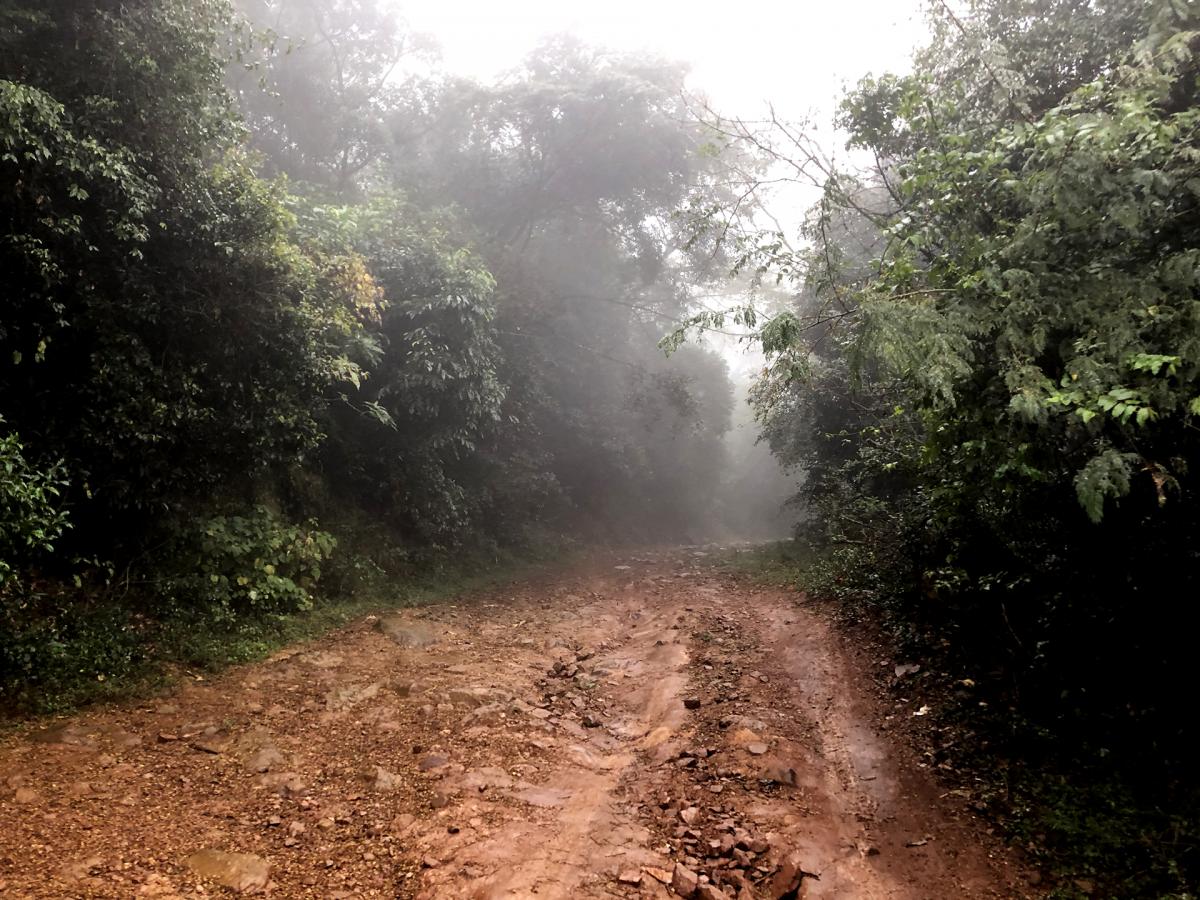
Kruger National Park: Lions - Photo Credits: Romina Facchi
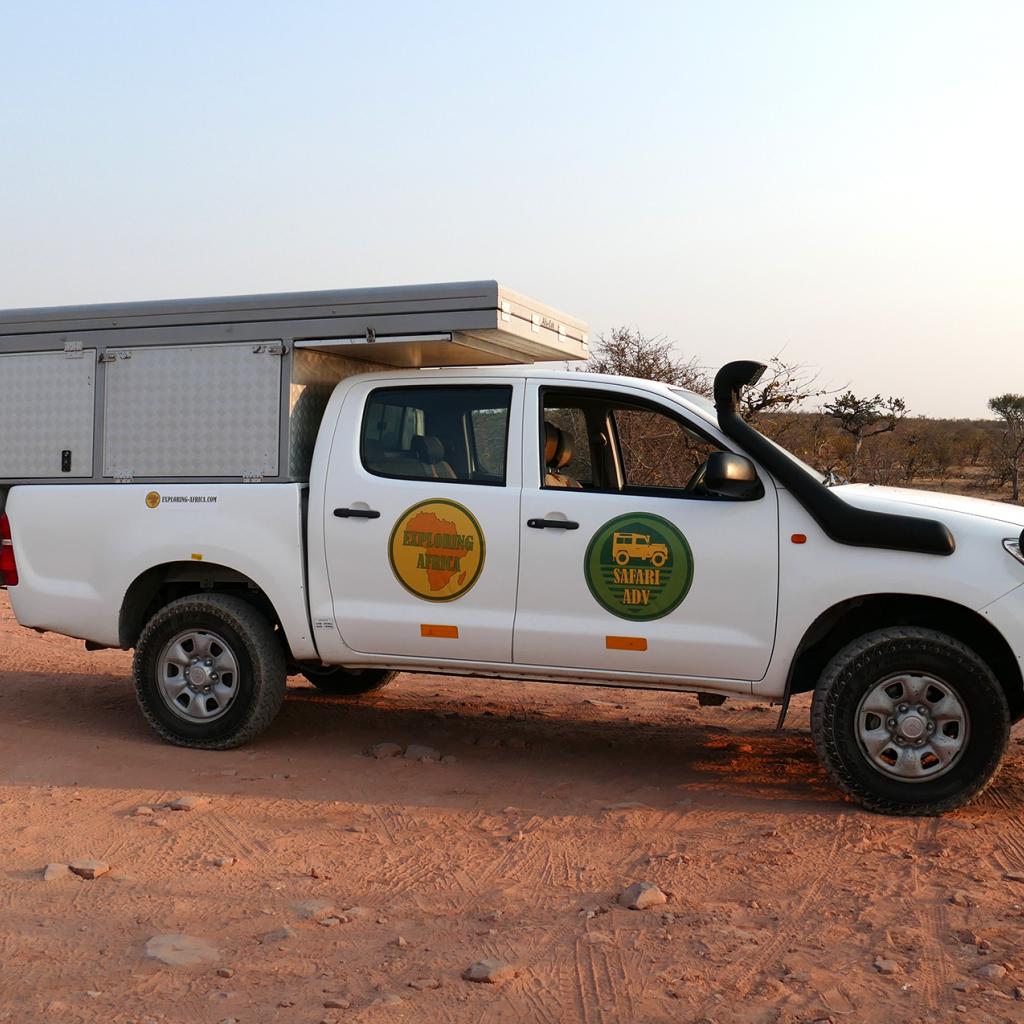
Our car! - Photo Credits: Romina Facchi
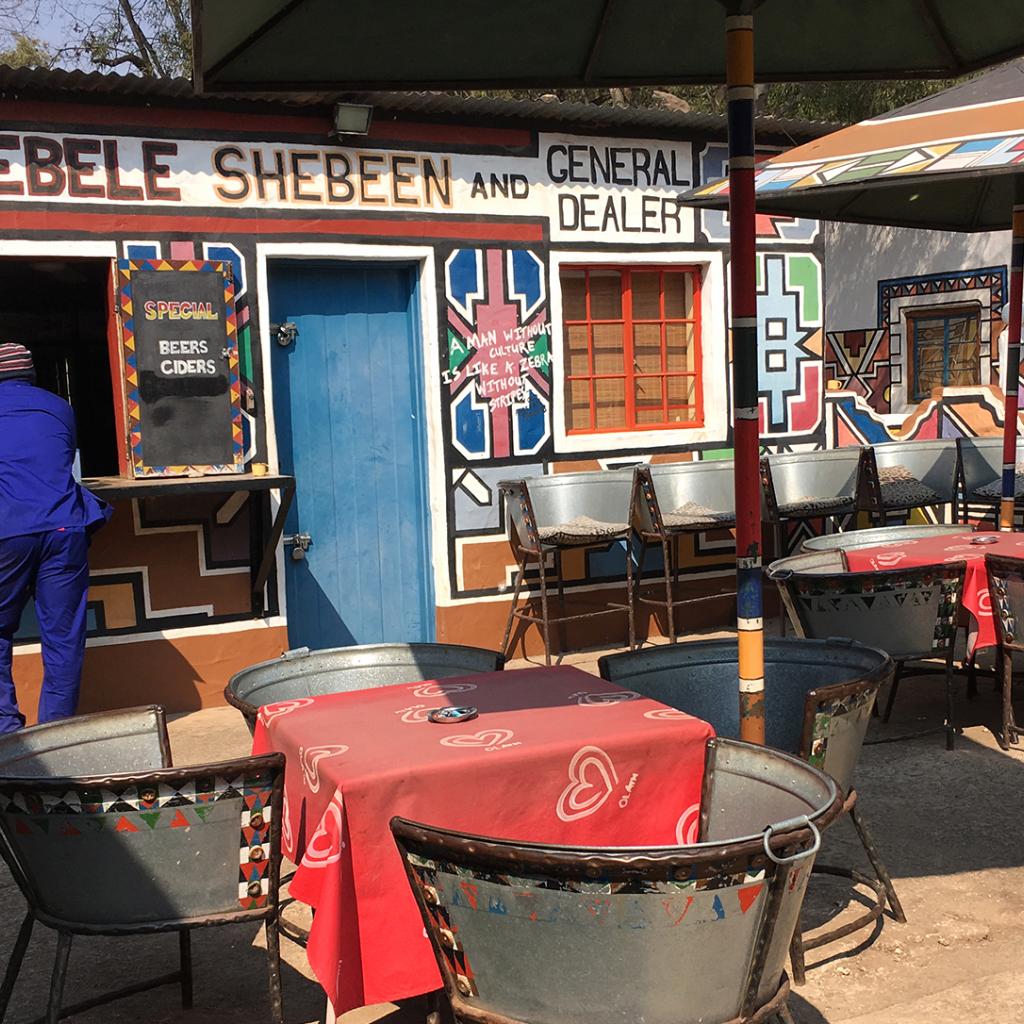
Ndebele - Photo Credits: Romina Facchi
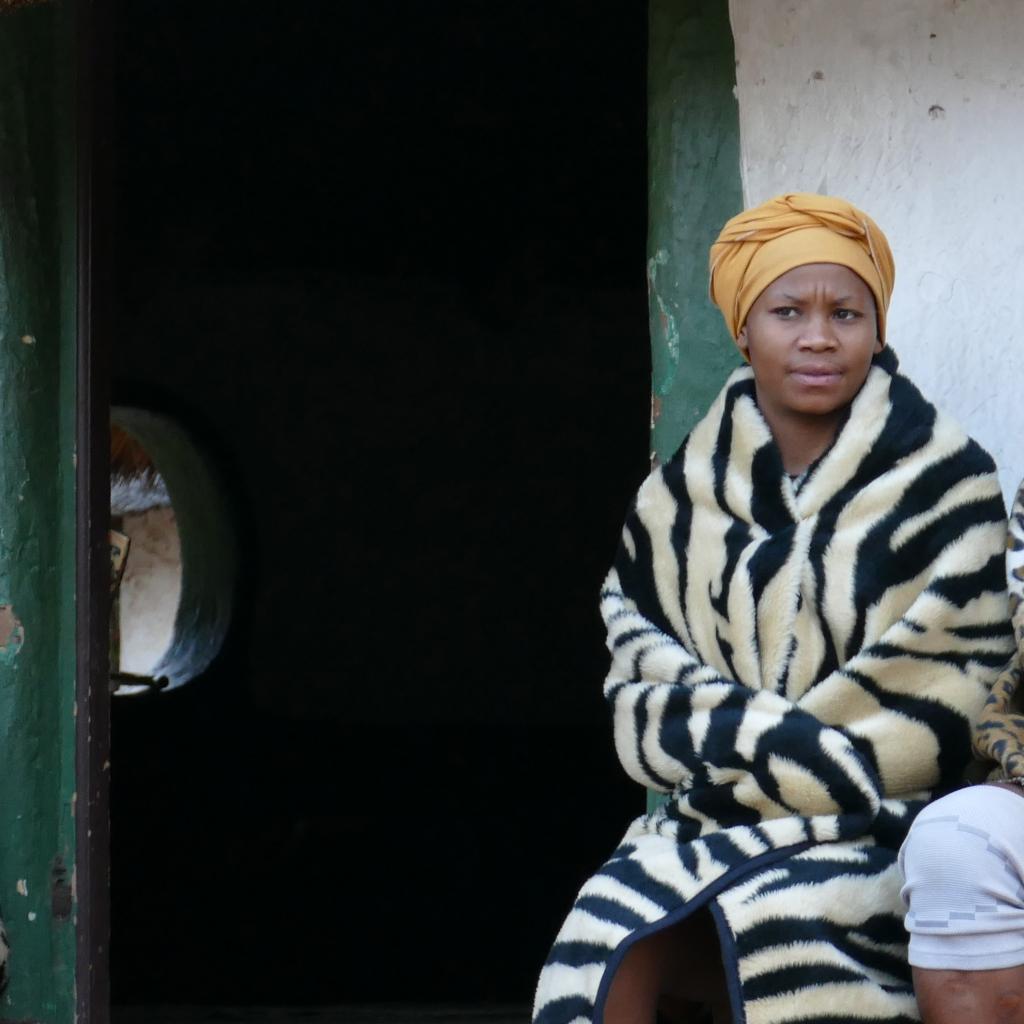
Xhosa - Photo Credits: Romina Facchi
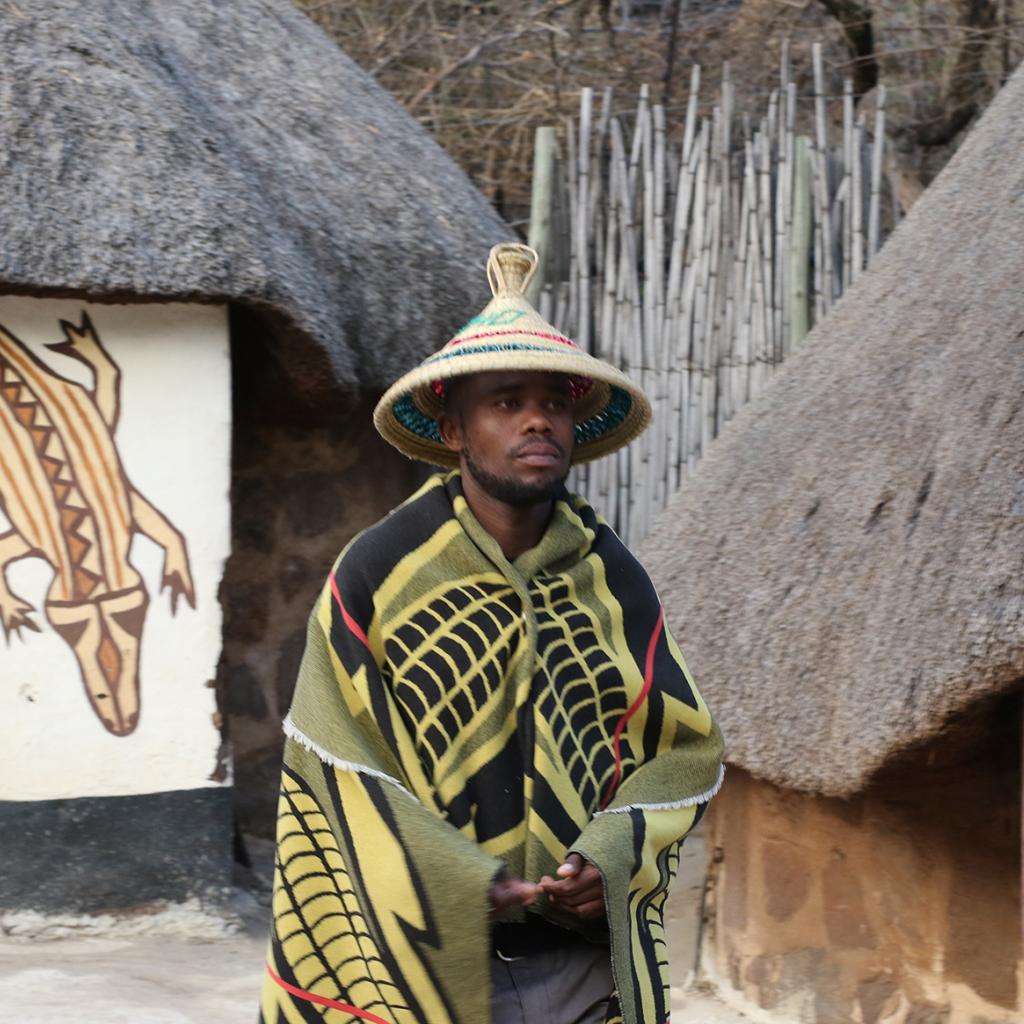
Basotho - Photo Credits: Romina Facchi
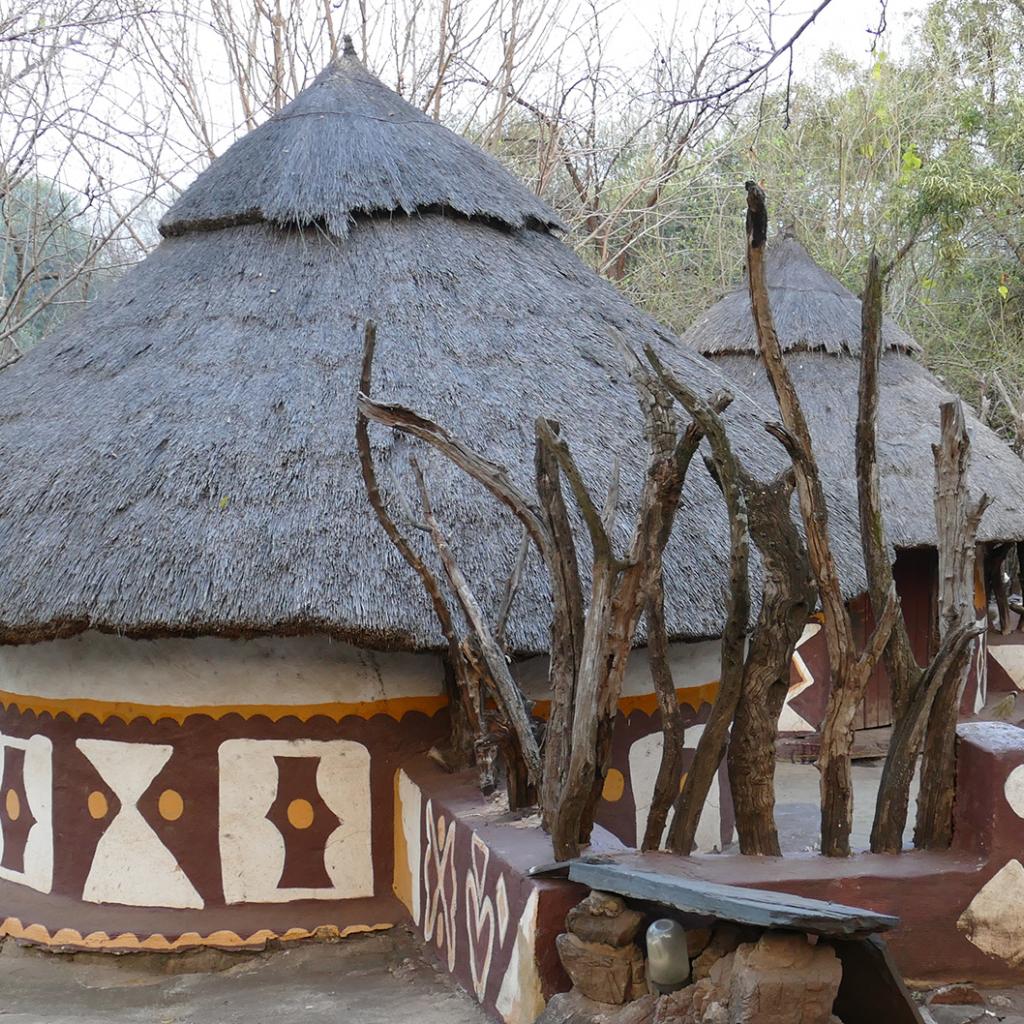
Pedi village - Photo Credits: Romina Facchi

Mapungubwe National Park - Photo Credits: Romina Facchi
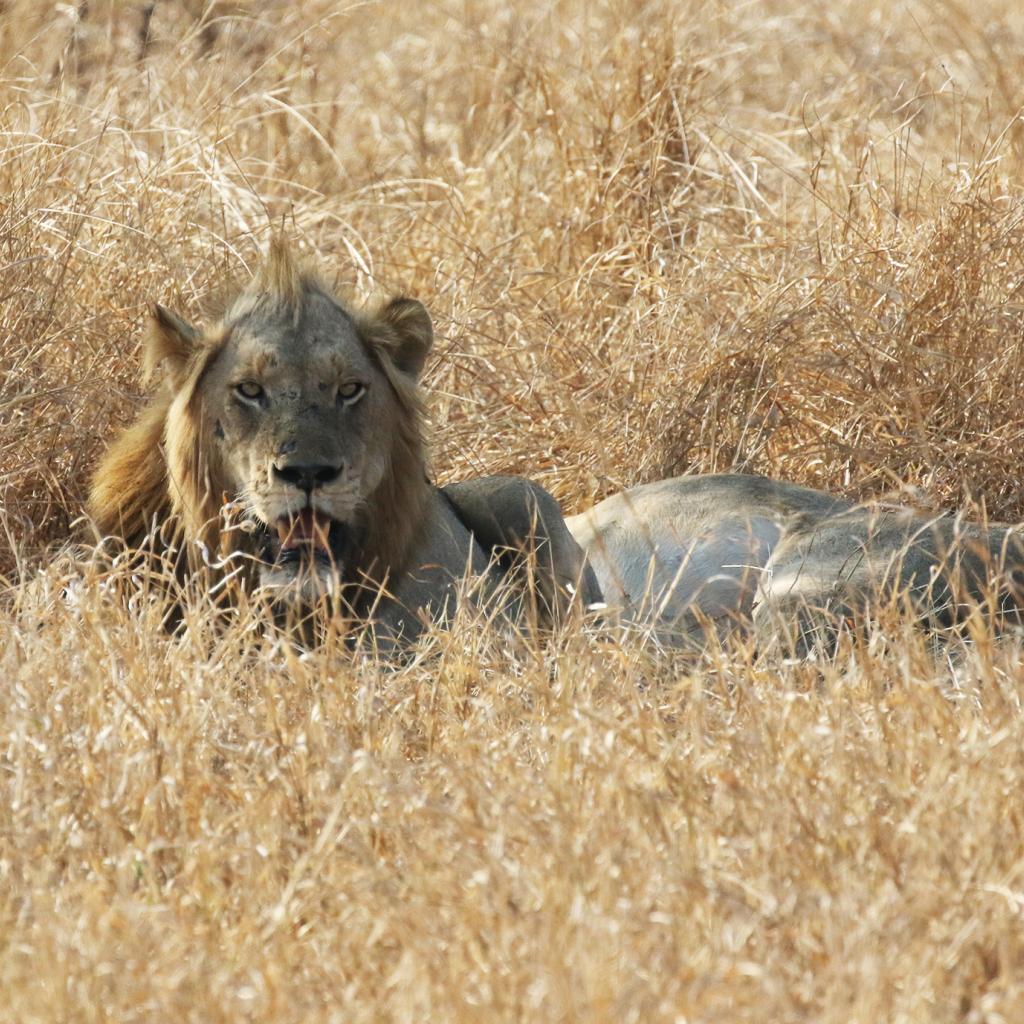
Kruger National Park: Lion - Photo Credits: Romina Facchi
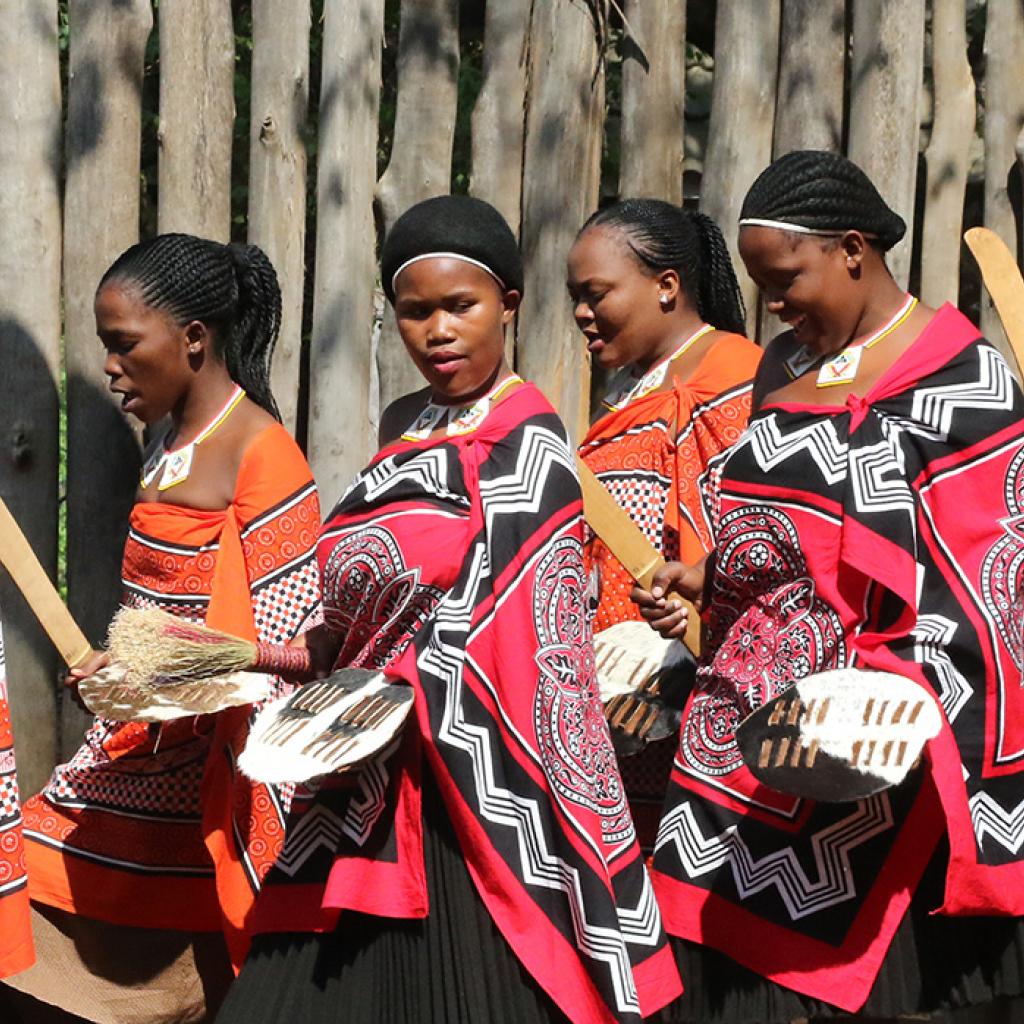
Swazi people - Photo Credits: Romina Facchi
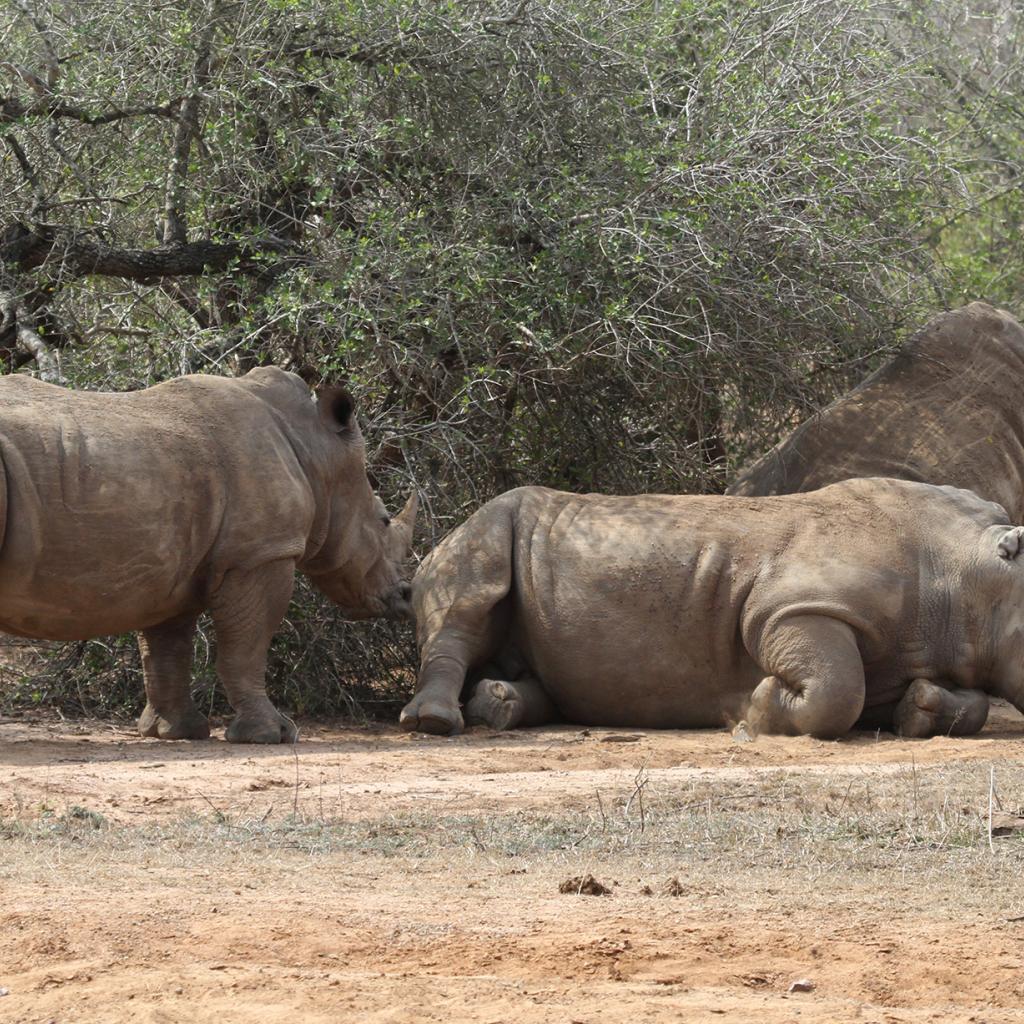
Hlane Royal National Park: Rhinos - Photo Credits: Romina Facchi
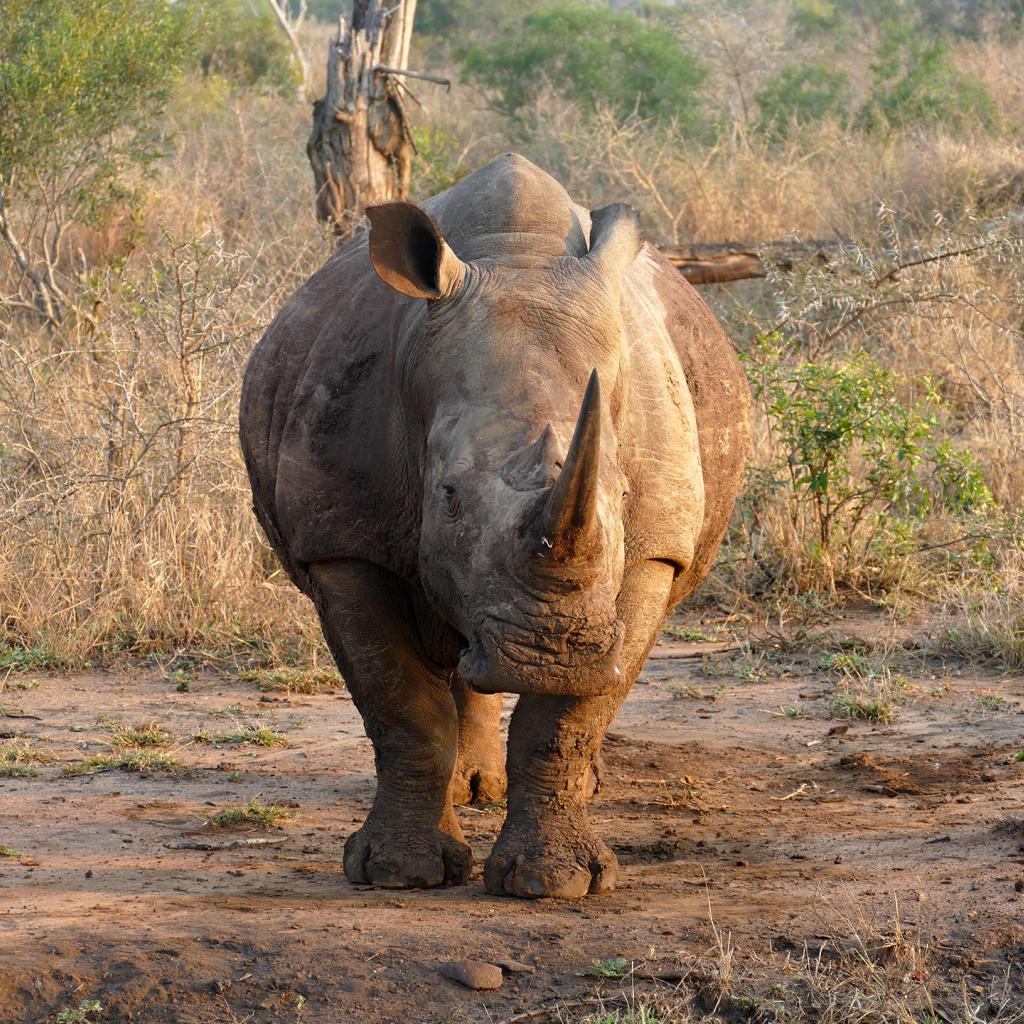
Mkhaya Game Reserve - Photo Credits: Romina Facchi
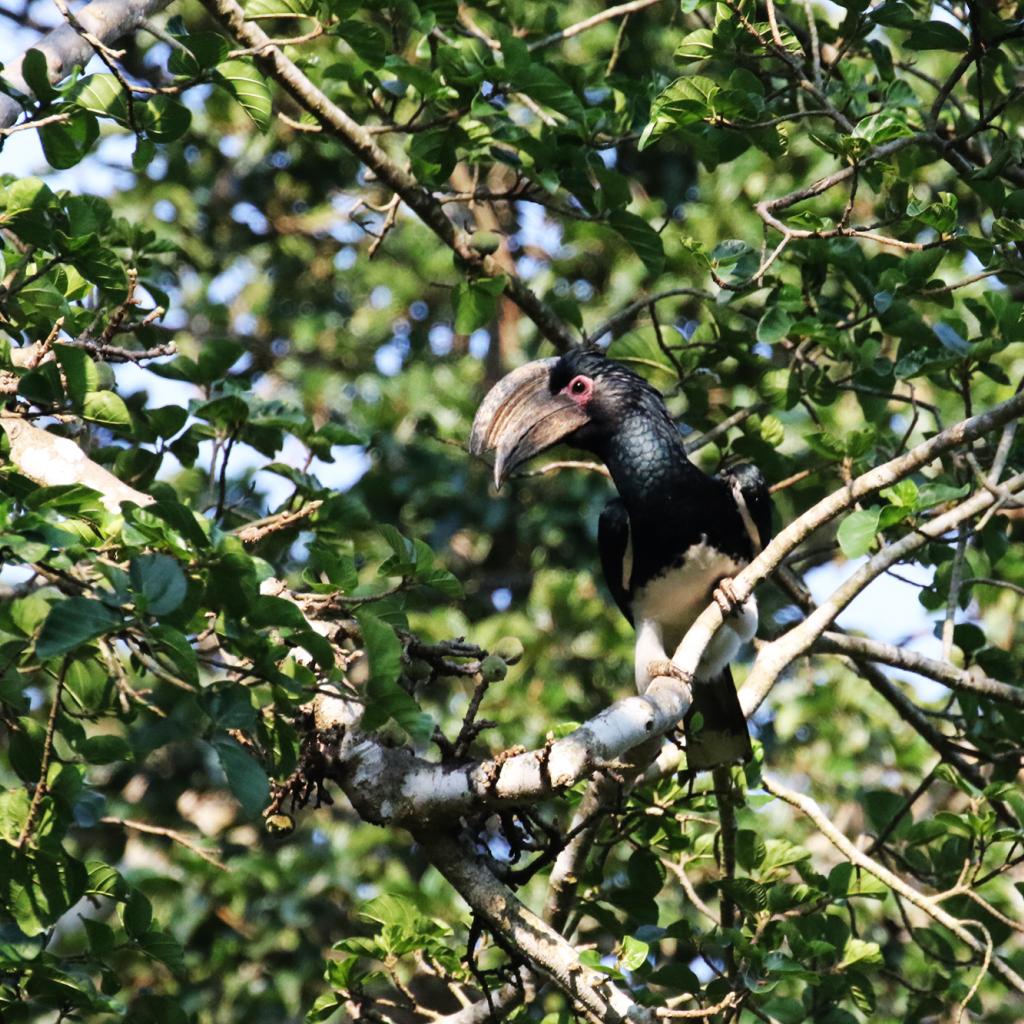
iSimangaliso Wetland Park: uMkhuze Game Reserve - Photo Credits: Romina Facchi

Hluhluwe-iMfolozi: Wild dogs - Photo Credits: Romina Facchi
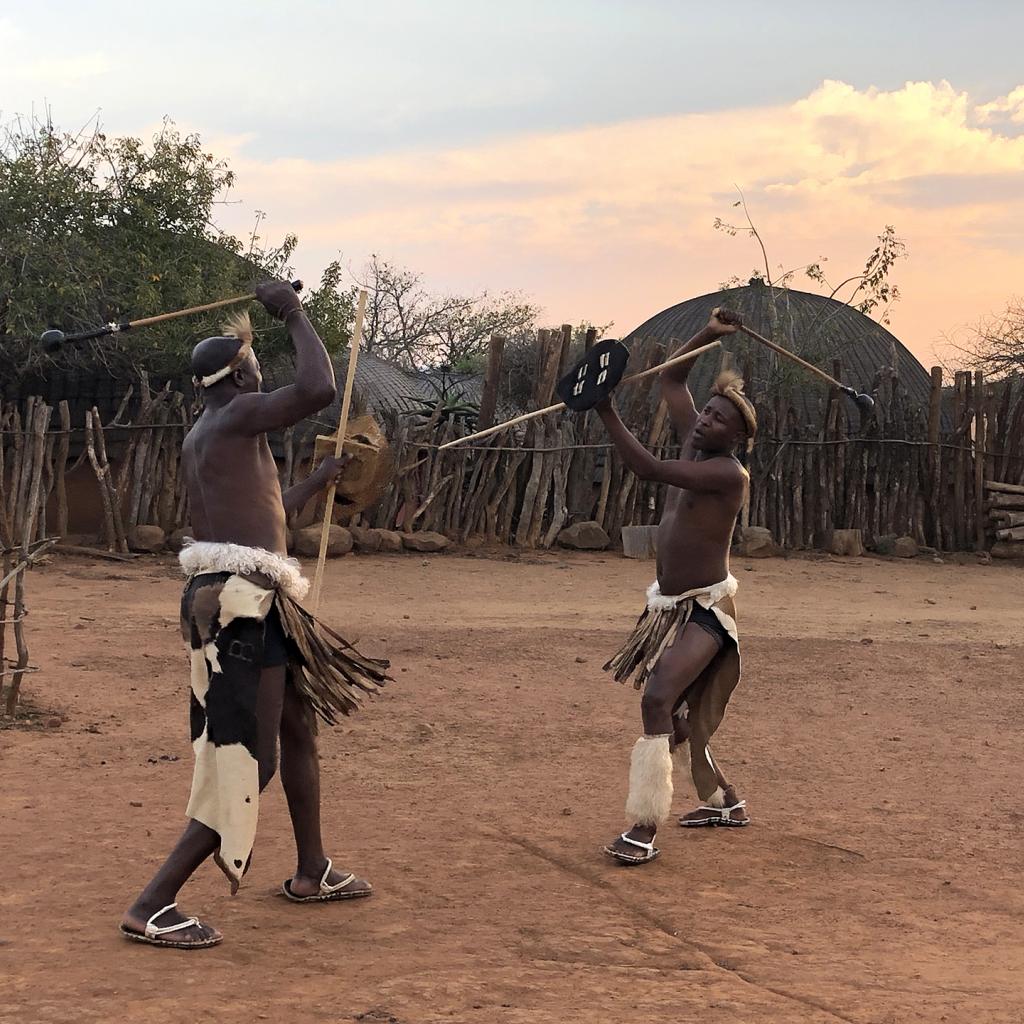

- Countryside
- Past Journeys
- SOUTH AFRICAN JOURNEYS ready-made adventures
- SOUTH AFRICAN JOURNEYS bespoke adventures
- Guestbook reviews and press
- Our Travel Blog
- Travel Guides
- What is Ethical Travel ?
- Our Contacts
- Tour Enquiries
- Ways To Pay Us

Venda Walking Holiday
Tour Highlights:
Immerse in local customs, scenic hiking & enchanting waterfalls Explore Venda heritage, indulge in local delicacies, and enjoy vibrant traditional dance Luxurious stay with cultural experiences.
Indulge in local customs, scenic hikes, and enchanting waterfalls on an ethical Venda walking holiday. Explore heritage, savor delicacies, and enjoy vibrant dance.
Journey Overview
Embark on a magical 5-day ethical Venda walking holiday, showcasing the timeless wonders of South Africa's Limpopo Province. This exhilarating journey invites you to explore the vibrant Venda culture and breathtaking natural beauty of Thohoyandou and Giyani.
Begin in picturesque Pilansberg, venturing to the heart of Venda, Thohoyandou, for a two-night stay. Discover the mystical Phiphidi Waterfall and embark on an unforgettable hike along the Pile & Chitadzumba Trail. Delve deep into local customs and marvel at the captivating landscapes.
The luxurious comforts of Giyani beckon for two nights of indulgence and cultural immersion. Meander through the enchanting Matsila Village, absorbing the essence of Venda heritage. Giyani's evenings enchant with scrumptious local delicacies and exhilarating traditional dance performances.
A seamless shuttle transfer carries you to OR Tambo Airport, concluding your extraordinary Venda experience. Embark on a celebration of culture, nature, and the warm spirit of South Africa , creating cherished memories to last a lifetime.

Ancient Giants and Timeless Beauty
Embark on a picturesque shuttle journey from Pilanesberg to Thohoyandou. Stay at the luxurious Royal Hills Lodge & Spa, nestled in Limpopo Province. The lodge offers rooms and suites with comfort and style. Some options include private pools and balconies. Amenities such as air-conditioning, a coffee and tea station, a desk, minibar fridge, and DSTV ensure a soothing stay.
Your home away from home:
Royal Hills Lodge & Spa royalhills.co.za 168 Freedom St, Thohoyandou Tel 066 270 2349
Kick off your adventure with a picturesque shuttle journey from Pilanesberg to Thohoyandou, the proud home of the world-renowned Sagole "Big Tree." This ancient baobab, standing tall at 22 meters and boasting a 9-meter circumference, is a whopping 1,200 years old. Explore the marvel of nature and witness the unique colony of rare mottled spinetails. Thohoyandou offers a blend of extraordinary sights and the luxurious embrace of Royal Hills Lodge & Spa.
Indulge in culinary artistry at the in-house restaurant, where a mix of continental and South African dishes is crafted from the freshest local ingredients. Enjoy a delightful dining experience with a choice between a diverse buffet and à la carte options for breakfast, lunch, and dinner. Immerse yourself in the authentic flavors of the region.

Nature Trek through Untamed Landscapes
After a day of exploration, you'll head back to Royal Hills to unwind and relax, capping off another splendid day in comfort and tranquility. Enjoy the peaceful ambiance of the lodge, reflecting on the day's exciting trail adventure.
10km guided adventure
Get ready to hit the Pile & Chitadzumba Trail for a 10 km guided adventure that's a delightful blend of green canopies and untamed landscapes. This trail promises an exhilarating challenge paired with stunning natural scenery. As you journey along, soak in the awe-inspiring views of rolling mountains, lush valleys, and serene waterfalls. Keep your eyes peeled for some of nature's most incredible residents, like the stealthy African wild dog, the noble black rhino, and the elegant blue crane. This trek is a testament to the deep connection the Venda people have with their environment, a theme that's intricately intertwined with their daily lives and traditions.
Don't worry about keeping your energy up – a hearty lunch and tasty snacks will be provided along the way.

Waterfall Hike: A Venda Cultural Experience
Post-hike, you'll be welcomed at The Farm Boutique Guest House in Giyani, an oasis of sophistication and comfort. Here, eleven exquisitely decorated rooms await, each with its own en-suite bathroom, providing a blend of luxury and privacy. The guest house is thoughtfully arranged with snug lounges and dining areas, ideal for relaxation or socializing with other guests.
The Farm Boutique Guest House thefarmgroup.co.za Stand No 56, Matsila Tel 064 518 1840
15 km guided hike
On Day 3, you'll be captivated by the tranquil Phiphidi Waterfall, a site revered in Venda culture. Embark on a 15 km guided hike that weaves through varied landscapes, including rocky paths and verdant forest trails. This region isn't just a feast for the eyes; it's also an artistic hub for local Venda creatives, known for their distinctive woodwork, drums, and textiles. Evenings at the guest house are just as enchanting, with its inviting bar and beer garden. Here, you can relax with a choice of beverages and light snacks, often accompanied by the ambient backdrop of live music or sports broadcasts, rounding off your day in a truly memorable way.
Dining at The Farm Boutique Guest House is an adventure in itself, blending African and European flavours with a special Swiss flair. The restaurant's a la carte menu is a parade of culinary delights, featuring mouth-watering dishes like succulent lamb shank, crispy chicken schnitzel, tender beef fillet, grilled fish, and a selection of scrumptious pastas. For a sweet interlude, the coffee shop at the guest house offers homemade cakes and pastries, accompanied by a variety of hot and cold drinks, perfect for a leisurely afternoon treat.

Cultural Odyssey: Matsila Village Marvels
Your day concludes with another night at The Farm Boutique Guest House in Giyani, where you can indulge in their exceptional cuisine and the comfort of their well-appointed accommodations.
15 km guided stroll
Day 4 brings a delightful 15 km guided stroll through the colourful and lively Matsila Village. Dive into the heart of the Venda culture, where the local community shines in their expertise in wood carving, drum making, and textile weaving. These aren't just crafts – they're treasured practices that keep their ancestral stories and cultural heritage vibrantly alive. As you stroll through the village, the path will take you across quaint village lanes and expansive fields, where you might spot a variety of farm animals, including the impressive Ankole cattle.
On Day 5, your Ethical Venda Walking Holiday gently winds down as you board the shuttle from The Farm Boutique Guesthouse to OR Tambo Airport. This marks the closing chapter of your unforgettable expedition through the vibrant heart of Limpopo.
Safe travels!
The evening promises a cultural feast, complete with local dishes and traditional dancers, giving you a deeper understanding of the local way of life.
Exceed House Springfield Office Park Belleville, Cape Town 7450
Cell / WhatsApp +27 72 136 9096
WhatsApp +27 72 136 9096
Email: [email protected]
We’re an ethical private travel planning company focused on Southern Africa.
We offer ready-made and also customised holidays and journeys across this unique region of the world.
When our clients travel with us, they are assured that their travel spend is directly supporting local African companies that offer sustainable products and services, both in terms of people and planet.

Our logo is an image of a skull found in the Rising Star Cave System in Gauteng, South Africa in 2013. It was named ‘homo naledi’, meaning ‘human of the stars’.
The cave system has so far given rise to the remains of over 15 individuals, making it the largest hominid fossil remains site ever discovered.
Travelling to Southern Africa is truly a return to the source of humankind, to Where It All Began.
- Accreditations
- Responsible Tourism Policy
- Sustainability Policy
- Cancellation Policy
- Privacy Policy
- Terms & Conditions
- Traveller Login
- Traveller Itineraries

- Buy Magazines
- Tourism News
- Destinations
- Get Published
- For Subscribers
- Travel Tech
- Travel Tips
- News Africa
- Special Features
- Tourism Data & Stats
- Survey/Polls
- Job Vacancies

The Domba Traditional Dance of Magical Venda in South Africa
All roads lead to the Venda land annually. The trip to this magnificent place is gratifying. It took me about close to six hours from Johannesburg, which is 437 kilometres to actually set foot on the fine dusty roads of the Vhavenda tribe, well known as the Vhagona.
Having stayed at the Mashovela bush lodge which is located on the Louis Trichadt, Southpansberg Mountain, Makhado just near the magnificent view of the satisfactory mountains and the nature on its own was breath-taking. This lodge is divided into different rondavels that have their own fencing. The lodge is a few kilometres away from the shopping malls, banks, ATMs (automated teller machine), bars, post offices and the airport.
I hoped that this will be one of my best trips, yet scary too, considering the fact that most people believe that you have a 50/50 chance of making it back alive from this destination. I am on a journey to witness the annual Domba (python dance) traditional dance ceremony of the Venda tribe.
The Venda (Vhavenda or Vhangona) are a Southern African people living mostly near the South African-Zimbabwean border. The bantustan of Venda was created to become a homeland for the Venda people. The Venda people, like their Tsonga neighbours, are one of South Africa ’s minority groups, they currently number 700 000 in Limpopo Province, while the Tsonga at their doorsteps number 900 000 people, also in Limpopo province.
Women of this tribe are taught to behave in a certain way, especially when addressing, greeting or giving food to the opposite gender. When handing over food to men, the woman needs to place the bowl on the floor or table and bow down. It is only once the man is happy with the food that the woman may get up and leave.
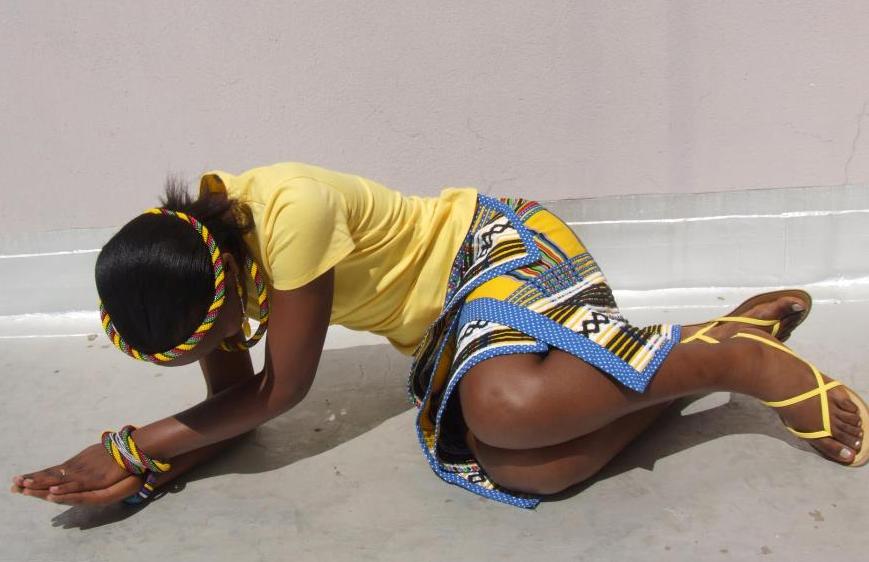
The cultural practice also forbids women to look men in their eyes, especially when talking to a man. This, in turn, shows respect for the men and the elders. Only men are allowed to be the heads of the family units.
Married women are required by tradition to feed their husbands at all times, even when he comes back home late. She is expected to get a bowl of water and cloth for him to wash his hands and bow down after giving him his plate. She must wait for him to finish eating then takes away the dishes and wash them clean. She may only go to sleep when her husband notifies that it is okay for her to go to bed.
Young women are taught this practice from a tender age and they are required to learn from their mothers on how to behave in front of their husbands and elders.
The Domba (python dance) traditional dance is held once yearly at the Fundudzi lake, which lies between Thohoyando and Louise Trichadt. This is where the Venda women go for initiation.
At the initiation ceremonies, these women form a long sequence, singing and dancing around in a circle, holding each other’s elbows, wearing small aprons that cover the back and front with tasselled ornaments called the Thahu.
Only young women who have started their menstruation cycles and have been perceived as mature, strong woman are allowed to take part in the rituals. The significance of this is so that they can bring good luck for the next seasonal rain and the ritual is above all, their preparation for womanhood.
The Venda culture is built on a vibrant mythical belief system that water is an important theme. The tribe believes that rivers and lakes are sacred and that rains are controlled by the python God. One of the most sacred sites of the Venda is the Lake Fundudzi. Here annually, the Domber python dance is held. An offering of beer is poured into the lake and young maidens at the final stage of their initiation into womanhood line up in a single line and dance in long winding lines.
Trips to the lake are rarely granted to visitors, which is probably just as well as it is said to be infested with crocodiles. So sacred is the lake that the newcomers have to turn their backs on the lake and view the water from between their legs. The experience was very scary, especially when you are told the story behind what would happen and the past outcomes of the people who visited the same place.
Drums are often given personal names and are always played by women and girls, except in possession dances when a man may play them.
The drums form an important part of the Venda culture and symbols linked to them.
Women are seen as the pure people for their manner of respect towards people in and around the Limpopo province. The women here are very far different from any other culture; they will lie on the ground and greet you.
The Tshikanda ladies go to the lake once every year to perform rituals to thank the ancestors. They come out in large numbers and most of the time, the chief will be there to celebrate this awesome event with his/her people. In this specific culture, a chief can also be a woman. They believe woman can lead the throne because of their strong personality and respect, they are capable of leading the people. There are other rituals in this culture such as the Vhusha, where a girl needs to go for a virginity test as soon as she is considered mature and has started her cycle.
The beautiful Venda culture may go hand-in-hand with other South African cultures, mostly Zulu/Swati, where they also perform virginity rituals for young females called the Umhlanga/Reed dance. The dance celebrates her womanhood and at the ceremony, men attend the occasion particularly to pick a wife.
Being part of this wonderful ceremony, where you get to witness this old tradition is a fantastic experience, especially for a woman like myself. Being celebrated by the majority is something phenomenal and it is important to say that there is no other feeling like seeing a man respect and honour his woman.
Domba is a very sanctuary moment for the Venda people. They celebrate and embrace their culture and traditions, thus passing it down to generations to come.
If you want to see and experience this phenomenal culture, do remember to visit the North Eastern region of South Africa . You will learn to appreciate not only their culture, but the fine land and colour it brings.
I do have to say that there is nothing as fulfilling as being invited and experiencing this beautiful moment. The Venda culture is one that I truly love and respect.
From Grape to Glass
Marriott international reveals robust expansion plans across africa, lorraine masemola.
Lorraine is a South African based junior journalist with Nomad Africa magazine published by 2414 Publishing (Pty) Limited. She is very passionate about travelling and a lover of the African culture. Lorraine had a Diploma in Journalism from Rosebank College in Johannesburg, South Africa and worked as an intern with The Star Newspaper. Fluent in English and other South African languages she is very eager to learn about new cultures and traditions. Though she is still very new in the industry, Lorraine is vibrant and energetic for new travelling experiences.
Related Posts

Unveiling Maasai Elegance: A Fashion Style in the Heart of East Africa

Harnessing Cultural Heritage: A Catalyst for Economic Growth?
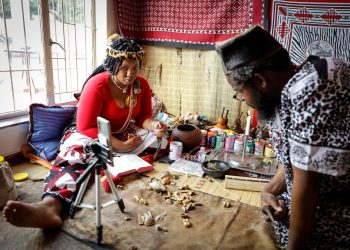
Spirit Mediums could Help Unlock Tourism Secrets – Study
Recent posts.
- Thanda Safari Celebrates 20 Years
- Proflight Unveils Flexible Baggage Policy For South African Travellers
- FEDHASA urges South African Government to ‘Keep Momentum’ on Remote Worker Visa
- The Sardine Run of KZN South Coast: The ‘Greatest Shoal on Earth’
- Africa’s first Glamping Expo slated for October in Johannesburg
- East Side’s Crown Jewel: BlackBrick Bedford Officially Opens
- Travel & Tourism set to Break All Records in 2024, reveals WTTC
- Aviator Airport Alliance Set to Redefine Airport Lounge Experience
- More than 50% of African Consumers in Loyalty Programmes want Freebies – Euromonitor International
- Here are the World’s Top Five Busiest Airports
- Africa’s Travel Indaba 2024 Kicks-off with a Buzz
- African Businesses Encouraged to Redefine themselves on the Global Stage
- Khanyi Malimela: Resilience and Dedication kept me Going
- TKZN Highlight Fishing Tourism
- Eight Best Travel Hacks
Trending on NomadTV
Advertisement.
- The Project
- Privacy Policy
- Cookie Policy
- Get In Touch
© 2015 - 2024. All Rights Reserved 2414 Publishing (Pty) Ltd. Designed & Developed by: CreativeMagic Group .
Welcome Back!
Login to your account below
Remember Me
Retrieve your password
Please enter your username or email address to reset your password.
Wait! Have You Subscribed ?
Subscribe to Nomad Africa weekly Newsletter today and never miss out on travel and tourism updates across the continent of Africa. Get industry insights, travel tips and understand how the latest trends will affect your business. Get great member benefits, learn more about African culture and support tourism in Africa.

Add New Playlist
- Select Visibility - Public Private

We Do Dis News
Discover World Top News
Una Rine’s Musical Journey Soars with ‘Lagos in Venda’ Album

Una Rine’s Musical Journey Soars with ‘Lagos in Venda Album’
“Una Rine: Merging Afro Beats and Tshivenda Melodies “
Limpopo, a province in South Africa, has been a cradle of musical talent, and one of its shining stars is the versatile artist Una Rine. Born in the vibrant cultural landscape of Venda, Una Rine has recently treated his fans to a musical masterpiece with the release of his much-anticipated album, “Lagos in Venda,” on February 1, 2024.
“Lagos in Venda” is a 20-track journey that showcases Una Rine’s unique musical prowess, blending the infectious rhythms of Afro beats with the rich and melodious sounds of Tshivenda, the local language of Venda. This fusion creates a captivating musical experience that transcends boundaries and offers listeners a taste of the vibrant cultural tapestry of South Africa.
Collaborations with Industry Stars:
Una Rine has brought together a stellar lineup of collaborators on this album, featuring some of the most prominent names in the South African music scene. Artists like Mizo Phyll, Osome Feyn, JR Player, Asa Tee, Greez Beatz, and more have lent their talents to the project, adding their own distinct flavors to the musical canvas.
Tracks that Stand Out:
Each track on “Lagos in Venda” is a testament to Una Rine’s ability to seamlessly merge diverse musical elements. From the energetic beats of Afro fusion to the soul-stirring Tshivenda lyrics, the album offers a dynamic range of sounds and emotions. Standout tracks include collaborations like “Harmony in the City” with Mizo Phyll, a blend of urban vibes and traditional melodies, and “Rhythm of the Hills” featuring the soulful vocals of Asa Tee.
The Cultural Intersection:
One of the most compelling aspects of “Lagos in Venda” is the intersection of cultures and sounds. Una Rine has successfully managed to weave together the cosmopolitan energy of Lagos with the authentic essence of Venda, creating a musical landscape that resonates with a diverse audience. The album is a celebration of cultural diversity and a testament to the power of music in bridging gaps and connecting people.
Impact on the Industry:
The release of “Lagos in Venda” marks a significant moment in the South African music industry. Una Rine’s ability to seamlessly blend different genres and collaborate with a variety of artists showcases the richness and diversity of the country’s musical landscape. The album is poised to make a lasting impact, not only on the local scene but also on the global stage.
Una Rine’s “Lagos in Venda” is a musical odyssey that transcends boundaries, offering a unique blend of Afro beats and Tshivenda melodies. The collaboration with industry heavyweights adds depth to the album, making it a must-listen for music enthusiasts. As Una Rine continues to carve his niche in the industry, “Lagos in Venda” stands as a testament to the power of music to unite, inspire, and celebrate cultural diversity.
Listen to The Album:
https://ingroovesafrica.lnk.to/LagosInVendaAr Brought to you by ingroovesafrica.lnk.to
Related Posts

Batondy Announces New Album “Survival of the Fittest #SOTF”
May 24, 2024

Osome Feyn and Una Rine Release new Single “Ayemi Temi Bami”
May 22, 2024 May 22, 2024

Sky walker Music and De Nax Unite for Soulful New Single “Change”
May 22, 2024
Translation of "translation" into Venda
., My Love, phindulelo are the top translations of "translation" into Venda. Sample translated sentence: (An American Translation; New International Version) She is boisterous and stubborn, talkative and headstrong, loud and self-willed, brazen and defiant. ↔ (An American Translation; New International Version) U na phosho na tshipimbi, u a ambesa nahone u na swili, u na mutsinga na lunyadzo.
(uncountable) The act of converting or translating (text from one language to another). [..]
English-Venda dictionary
Less frequent translations
- translation
- young guy stop sleeping with my women , im warning you and dont think i cant find you
Show algorithmically generated translations
Images with "translation"
Translations of "translation" into venda in sentences, translation memory.
HowToSayGuide
Master Language Nuances & Express Yourself Globally
Guide: How to Say Good Night in Venda
Welcome to our comprehensive guide on how to say good night in Venda! Whether you are planning to visit the Venda-speaking regions of South Africa or simply want to learn a few phrases, we’ve got you covered. In this guide, we’ll provide you with the formal and informal ways to bid someone good night in Venda, and offer tips, examples, and a little context for a better understanding. So, let’s get started!
Formal Ways to Say Good Night in Venda
In formal settings, it’s important to use respectful expressions when saying good night in Venda. Here are a few commonly used phrases:
- Lala n’waho – Sleep well
- Fhwathu lalaho tshimbithu – Have a peaceful sleep
- Ralaho ndushu – Sleep well, beloved one
Informal Ways to Say Good Night in Venda
If you’re in a more casual or friendly setting, you can use these informal expressions to bid someone good night:
- Lala vhusiwana – Sleep tight, little one
- Nwananga u vhe u dzala vhathu – My child, may you dream of good things
- Lala vho-makwerhu – Sleep well, friend
Tips for Saying Good Night in Venda
Here are a few useful tips to enhance your understanding and use of these phrases:
- Pay attention to individual customs and context: In Venda culture, it is important to be aware of situational appropriateness and potential regional variations in the way good night is expressed.
- Non-verbal cues: In addition to using the appropriate phrases, Venda culture often emphasizes non-verbal communication. A warm smile or gentle touch can convey your good intentions and make your good night wishes more heartfelt.
- Vocabulary expansion: Learning additional Venda vocabulary related to sleep, dreams, or well wishes can deepen your understanding and appreciation of the language.
- Practice makes perfect: As with any new language, practice is key. Try using these phrases with native Venda speakers or incorporating them into your daily routine to reinforce your learning.
Examples of Good Night Phrases in Venda
Let’s now explore some practical examples of using these good night phrases in Venda:
Person A: Lala n’waho, ndi bva zwotshavhana! Person B: Lala vho-makwerhu, u vha na zwino zwa u thusa! Translation: Person A: Sleep well, I understand your help! Person B: Sleep well, friend, you always assist me!
Remember, the more you engage with the Venda language, the richer your experience will be. Now that you have a solid foundation in saying good night, we encourage you to explore more Venda phrases and cultural customs to fully immerse yourself in this fascinating language.
We hope this guide has been helpful on your journey to learn how to say good night in Venda! Lala vhusi divhadzhi! (Sleep peacefully!)
Related Posts
Good night wishes: how to say good night to end a conversation, guide on how to say beautiful in venda, how to say bored in venda: informal and formal ways, how to say brother in venda: formal and informal ways, tips, and examples, guide: how to say goodbye in venda, how to say "come" in venda: formal and informal ways, tips, and examples, how to say congratulations in venda, how to say "enjoy your day" in venda: formal and informal ways.
Written by Darlene Alexis
Hello there, I'm Darlene. I'm an absolute language aficionado, drawn by the rich tapestry of phrases and words across the globe. I enjoy digging into different languages, researching and sharing unique ways of expressing common phrases, from simple hellos to mushy expressions of love. When I'm not caught up in my web of words, you'll find me indulging in my love for art and pizza (sometimes coding pizza in binary!), or trying my hand at a friendly game of Roblox. Exploring global dialects and sharing my discoveries is my passion, one post at a time!
Leave a Reply Cancel reply
Your email address will not be published. Required fields are marked *
Save my name, email, and website in this browser for the next time I comment.

How to Say “Are You Lying?” in Spanish: Formal and Informal Ways

How to Say “Will Keep Working Hard”: A Comprehensive Guide
- Admission |
- Student Finance and Financial Aid |
- Enquiries |
- Collaborate |
- Vacancies |
A talented UNIVEN Physics Masters student from the Faculty of Science, Engineering and Agriculture selected to attend the prestigious 2024 Lindau Nobel Laureate Meeting in Germany
Ms. Letsoalo is one of the eight young scientists from South Africa selected by ASSAF (Academy of Science of South Africa) and the Council for the Lindau Nobel Laureate Meetings to participate in the 73rd Lindau Nobel Laureate Meeting dedicated to Physics, which will take place from 30 June to 5 July 2024. Ms. Modjadji Rebecca Letsoalo is a young woman, from Sebayeng Village around Ga-Dikgale in Polokwane. She obtained a Bachelor of Science in Physical Sciences in the year 2020 and Honours in Physics (cum laude) in the year 2021 from the University of Limpopo.
She enrolled for a Master of Science in Physics, at the University of Venda in 2022 focusing on Material sciences (Microsystems technology). She recently submitted her Master thesis and is currently waiting for the results. She is currently a Physics Comment magazine assistant for SAIP (South African Institute of Physics), and a Science communicator at Inkcubeko Youth and Science Center, Bridging the gap between the scientific community and the general public, and promoting a more informed and scientifically literate society.
In her research, Ms. Letsoalo was investigating on Hydrothermal synthesis of nano-scaled pure, Sn, and Zndoped Co3O4 structures and their gas-sensing applications under the supervision of Dr. Katekani Shingange from MINTEK and Prof. Eric Maluta from the University of Venda. The project aimed to develop nanoenabled Co3O4-based gas sensors for the detection of various gases in the agriculture and food industry space. The experimental development of the nanomaterials was coupled with theoretical studies through computational calculations for a better understanding of the interaction between target gas molecules and the nanomaterials. Ms. Letsoalo has won the South African Women in Science Awards (SAWiSA 2023) under the DSI Ndoni Mcunu Masters fellowship category and was 2nd winner for student/Post-doctoral presentation at the 9th South African Conference on Photonic Materials in 2023 at Skukuza Rest Camp in Mpumalanga for her masters work.
The FSEA is very proud of the student and her supervisor and the Department of Physics for preparing her in her science journey and we wish her all the best in her future career and we know we will hear more great achievements from her.
Issued by: Department of Marketing, Branding and Communication University of Venda Cell: 082 868 2218 or 082 868 1811
Upcoming Events
ANNUAL INTERNATIONALISATION WEEK 2024 by UNIVERSITY OF VENDA, LIMPOPO
INVITATION AND CALL FO RTHE PAPERS FO RTHE 1ST FACULTY OF MANAGEMENT AND LAW INTERNATIONAL CONFERENCE(FMLIC), UNIVERSITY OF LIMPOPO
Latest news, accountancy students receive practical tips on navigating the job market successfully, univen fc is the champion of safa vhembe sab hollywood bets league stream d-2 for the second time, privacy overview.

Pfarelo’s journey from security officer to honours graduate
Naledzani graduated with an honours degree in town planning from the university of venda showcasing his perseverance and determination..

LIMPOPO – Pfarelo Naledzani, a 36-year-old security guard from Tshithuthuni in Thengwe village, has proven that dedication and hard work pave the way to success.
Last Wednesday, Naledzani graduated with an honours degree in town planning from the University of Venda (Univen), showcasing his perseverance and determination.
Naledzani’s journey was, however, far from easy.
Born into a disadvantaged family, he faced numerous challenges and hardships, but driven by an unyielding thirst for knowledge and a belief in his potential, the father of four refused to be limited by his circumstances.
“Graduating was a profoundly significant moment for me, my family, and everyone who supported me, including my wife. But to be honest, the journey was far from easy. There were days when I went to class without a meal, returning home empty-handed. Despite the hardships, I remained determined to pursue my dreams,” he told CV.
After matriculating from Azwifarwi Secondary School in 2006, Naledzani upgraded his maths and physical science subjects and eventually secured a spot at university after several attempts.
He began his studies in 2010 but had to drop out in 2016 due to various challenges, including the loss of NSFAS funding.
With just one module remaining that year, he felt defeated but resolved to find employment to support his return to Univen.
“My mother financed my registration, which I used to get a certificate for security to fund my studies in 2017.
“The security job eventually afforded me the opportunity to return to university and complete my course. Despite challenges, I persevered, paying tuition and supporting my family. I remain focused on my goals.”
Balancing his security guard duties with his studies was challenging, he encourages those hesitant to pursue their dreams despite other obligations.
“My experience in security enhances my role in town planning, enabling me to contribute to safer, more liveable communities,” he explained.
Naledzani’s story is a testament to the power of perseverance.

IEC returns to manual voting to assist long queues
Vhembe derby marred by fan violence, related articles.

Polokwane mayor questioned by police over Juju Valley violence

Commercial explosives confiscated at the Beitbridge Border Post

Tshikota residents tired of dysfunctional sewerage system

DA confirms recount of votes from Mitchell House voting station

IMAGES
VIDEO
COMMENTS
Useful phrases in Venda. A collection of useful phrases in Venda (Tshivenḓa), a Bantu language spoken in parts of South Africa and Zimbabwe Jump to phrases. See these phrases in any combination of two languages in the Phrase Finder. If you can provide recordings, corrections or additional translations, please contact me.
Additionally, we've provided resources and expert tips to support your journey in learning Venda greetings and further immersing yourself in the language and culture. Remember, language learning is a journey, and every step you take brings you closer to a deeper understanding of the world around you. So, whether you're planning a trip to ...
Translation of "journey" into Venda. lwendo is the translation of "journey" into Venda. Sample translated sentence: Over a long journey, it could miss its destination by a huge distance. —Hebrews 3:12. ↔ Tshenetsho tshikepe tshi ḓo fheleledza tsho swika hune tsha khou ya hone tsho shumisa nḓila ya kule vhukuma.
Welcome to Venda Lessons 101 - Learn to Speak Tshivenda!Tshivenda, often referred to simply as Venda, is one of South Africa's eleven official languages.It is primarily spoken by the Venda people in the northeastern parts of Limpopo Province.Rich in cultural history and noted for its complex grammar and vocabulary, Tshivenda is a language that resonates with the heritage of its people.
Embark on a captivating journey to the heart of South Africa's hidden gem, Venda, located in the Limpopo Province. Renowned for its breathtaking landscapes, ...
The week-long trip, organized by Jeff Rink of Ecopsychology Africa, is taking us on a journey into the forested hills and valleys of Venda's Soutpansberg, staying in villages, visiting sacred sites and being absorbed heart and soul into the fertile landscape and rich VhaVenda culture.
Indulge in the Delicious Traditional Cuisine of Venda. Venda cuisine is a tantalizing journey for the taste buds, filled with unique flavors and traditional techniques. From the moment you take your first bite, you are transported to a world where food is not just sustenance but a celebration of culture and heritage. Vibrant and diverse, Venda ...
The spirituality of this area was tangible, and sitting on the damp grass under a cool canopy of green, Nelson explained to us the process of a second burial. In Venda culture, the ancestors must be petitioned for the deceased of the family to join their ranks. If the ancestors permit, the bones of the deceased are exhumed and reburied amongst ...
Experience a Venda Walking Holiday through our beautiful province, Limpopo in South Africa. Discover the culture and nature of Thohoyandou and Giyani on foot!
Venda is a beautiful language spoken by the Venda people in South Africa. In this guide, we'll explore both formal and informal ways to express this question, along with some tips, examples, and regional variations when necessary. ... Keep practicing, and enjoy your journey of learning Venda! See more. Previous article Guide on How to Say Alnilam;
Venda culture. V enda culture and traditions are rooted in the responsibilities of the royal leaders, who are referred to as mahosi or vhamusanda in the Luvenda language, which means chiefs or traditional leaders who are royal leaders. The royals and their children embody good morals, and lead their communities by example.
Here are ten beautiful places in Venda: Lake Fundudzi: This sacred lake is one of the few natural inland lakes in South Africa. The lake and its surroundings are beautiful and serene. Thulamela Archaeological Site: Explore the ancient stone walls and artifacts of a civilization that existed about 500 years ago.
Here are a few formal ways to say "come" in Venda: Ri - This is the most commonly used formal word for "come" in Venda. It can be used in both singular and plural contexts. For example, "Ri khou divha!". - Come and see! Tshi - Another formal word for "come" in Venda is "tshi.". It is commonly used when inviting someone ...
In Venda mythology, the Rain Queen Modjadji is a revered figure who possesses the ability to control the rain and ensure fertility in the land. The Modjadji dynasty, also known as the Balobedu dynasty, has a long history dating back centuries. Modjadji is believed to be a divine ruler with a direct connection to the ancestral spirits, making ...
The Venda in South Africa. The South African Province of Limpopo is not only a fantastic destination for nature safaris, but it hosts in its territory one of the populations who has managed to keep alive the traditions, myths and legends of its culture: the Venda. A stop on our journey, through Eastern South Africa, was at a cultural village ...
Here are a few formal ways to say "I am fine" in Venda: 1. Ndi khou ṱhoma. This phrase translates to "I am well" and is a polite and respectful way to respond to inquiries about your well-being. 2. Ndi khou tenda. Meaning "I am grateful," this phrase is often used in formal contexts to express well-being and thankfulness ...
Kickstart your journey with a picturesque drive from Pilansberg to Thohoyandou in Limpopo, where you'll settle in for two nights. Dive into the heart of local customs with a visit to the enchanting Phiphidi Waterfall and take an exhilarating hike along the Pile & Chitadzumba Trail. ... On Day 5, your Ethical Venda Walking Holiday gently winds ...
It is important that you don't confuse the Venda \th" with the fuzzy The Venda \th" is like the \th" in \potholder". sound those letters make together in English. The sound at the beginning of \throat" doesn't exist is Tshivend a. The \th" is Venda sounds more like the \t" at the end of \throat". Also remember that \ph" does not make
I am on a journey to witness the annual Domba (python dance) traditional dance ceremony of the Venda tribe. The Venda (Vhavenda or Vhangona) are a Southern African people living mostly near the South African-Zimbabwean border. The bantustan of Venda was created to become a homeland for the Venda people.
Translations from dictionary Venda - English, definitions, grammar. In Glosbe you will find translations from Venda into English coming from various sources. The translations are sorted from the most common to the less popular. We make every effort to ensure that each expression has definitions or information about the inflection.
The Album: "Lagos in Venda" is a 20-track journey that showcases Una Rine's unique musical prowess, blending the infectious rhythms of Afro beats with the rich and melodious sounds of Tshivenda, the local language of Venda. This fusion creates a captivating musical experience that transcends boundaries and offers listeners a taste of the ...
Translation of "translation" into Venda ., My Love, phindulelo are the top translations of "translation" into Venda. Sample translated sentence: (An American Translation; New International Version) She is boisterous and stubborn, talkative and headstrong, loud and self-willed, brazen and defiant. ↔ (An American Translation; New International Version) U na phosho na tshipimbi, u a ambesa ...
Person B: Lala vho-makwerhu, u vha na zwino zwa u thusa! Translation: Person A: Sleep well, I understand your help! Person B: Sleep well, friend, you always assist me! Remember, the more you engage with the Venda language, the richer your experience will be. Now that you have a solid foundation in saying good night, we encourage you to explore ...
The FSEA is very proud of the student and her supervisor and the Department of Physics for preparing her in her science journey and we wish her all the best in her future career and we know we will hear more great achievements from her. Issued by: Department of Marketing, Branding and Communication University of Venda Cell: 082 868 2218 or 082 ...
Last Wednesday, Naledzani graduated with an honours degree in town planning from the University of Venda (Univen), showcasing his perseverance and determination. Naledzani's journey was, however ...